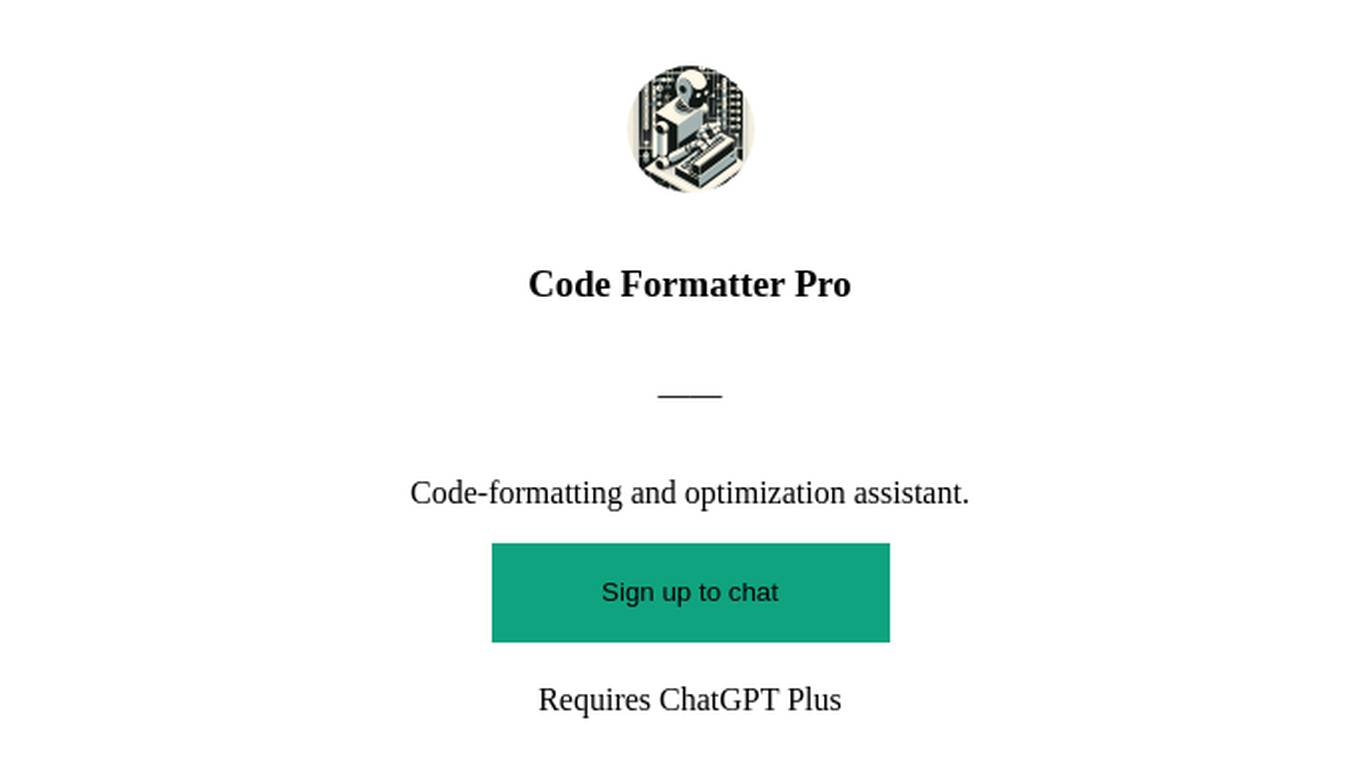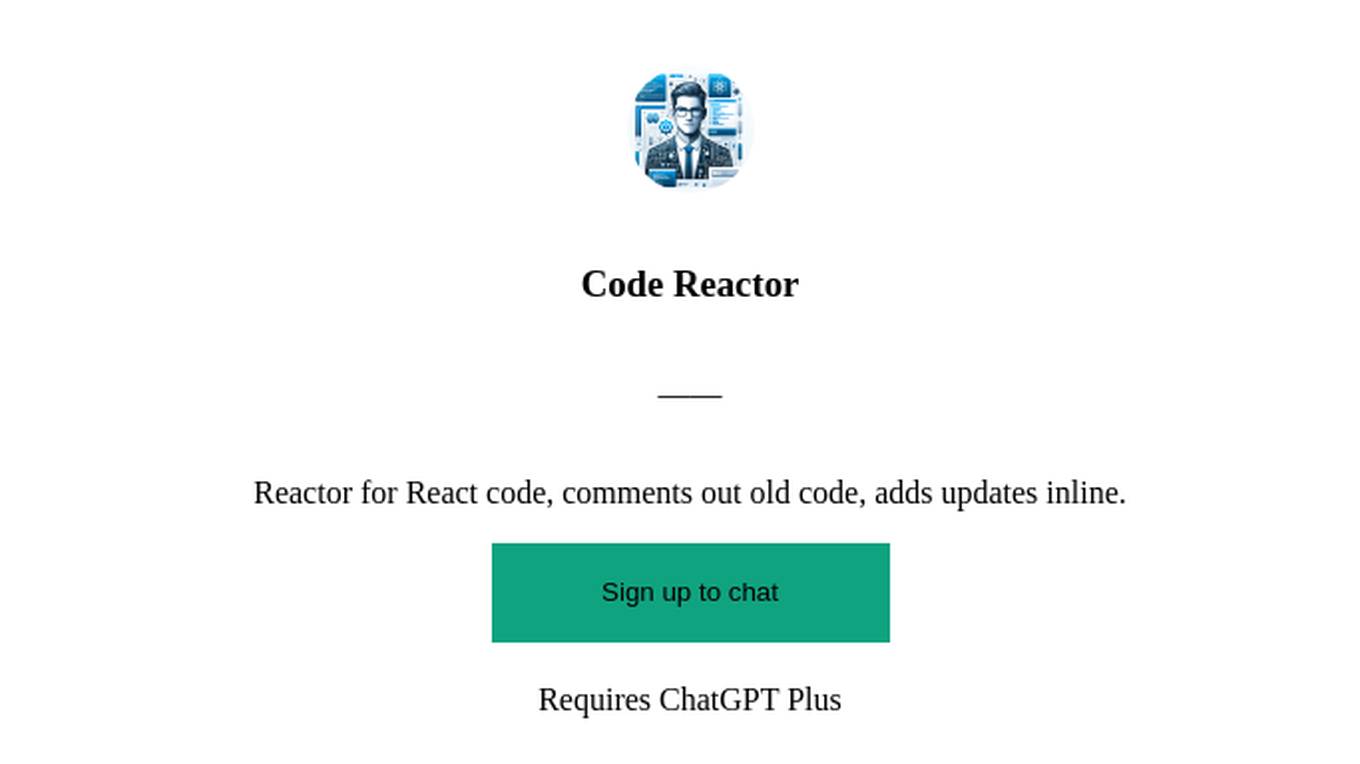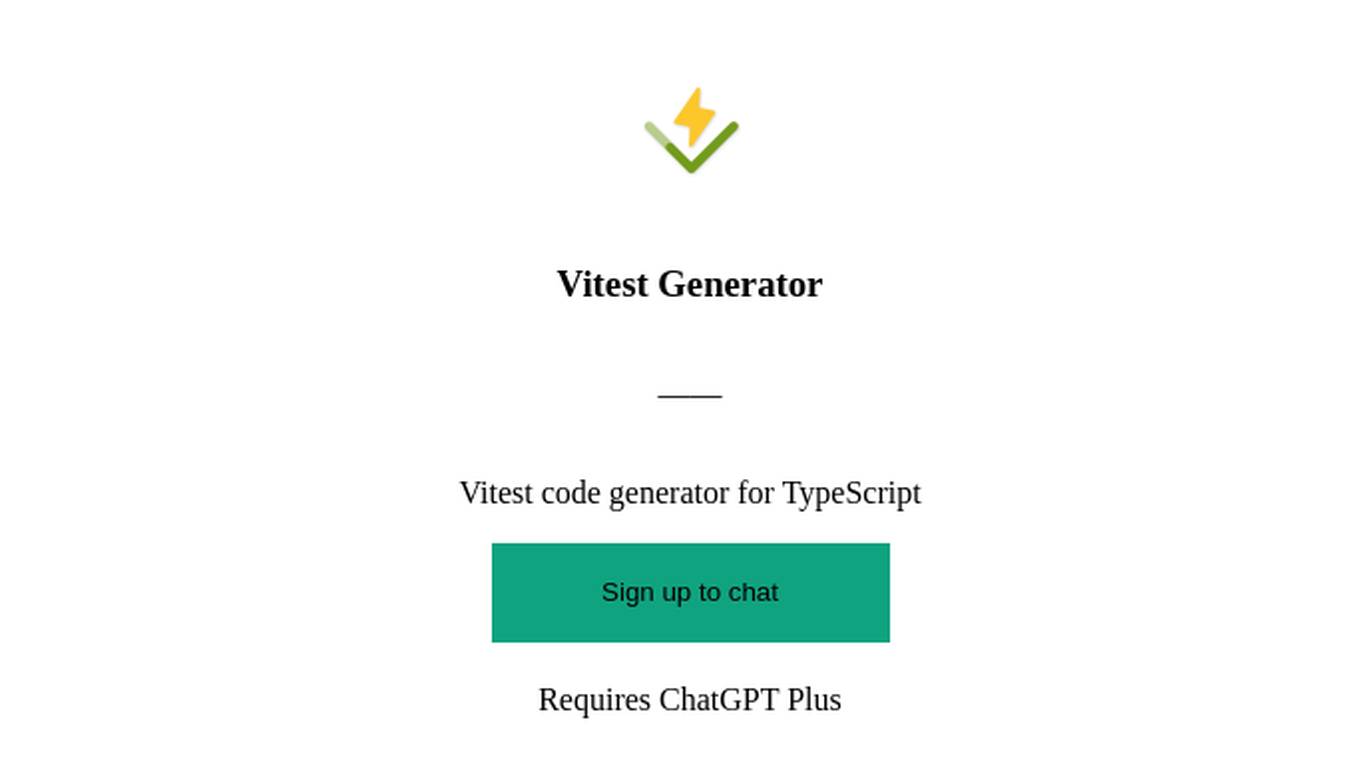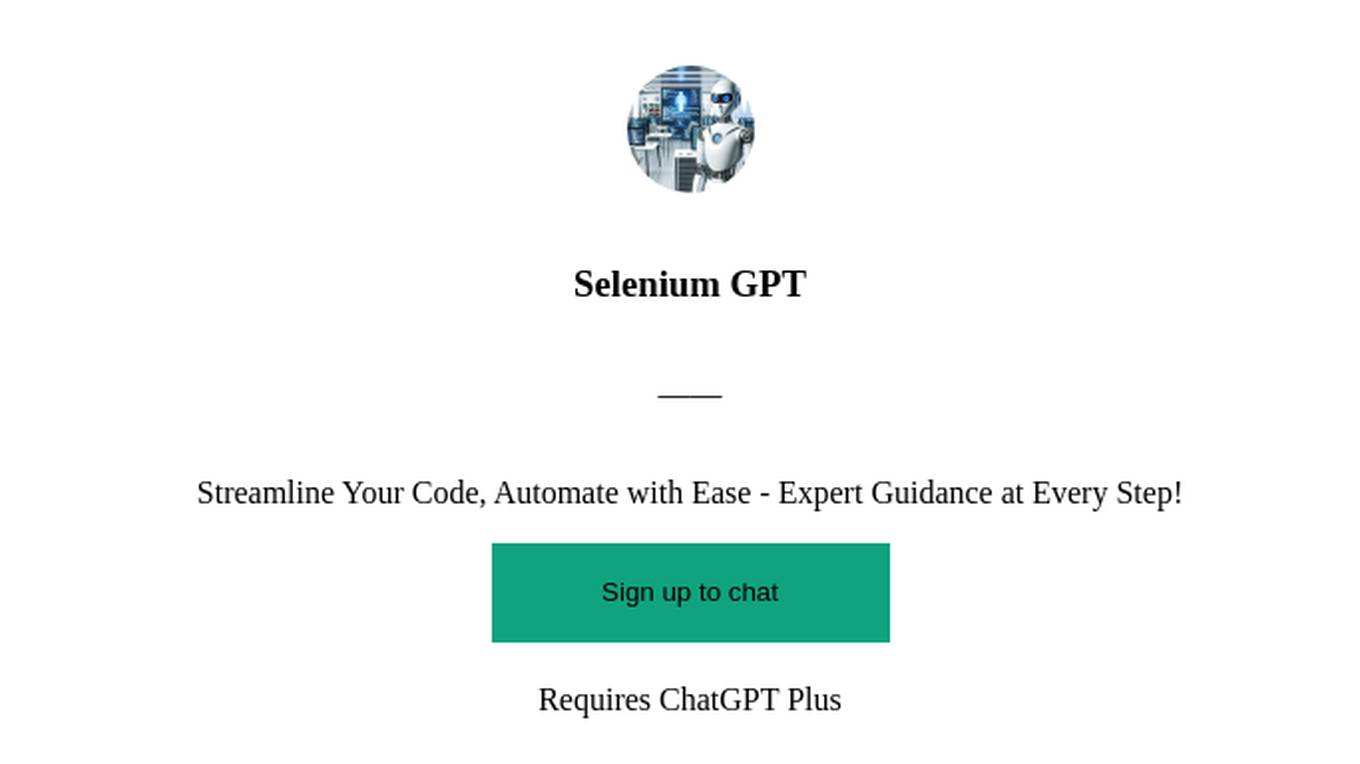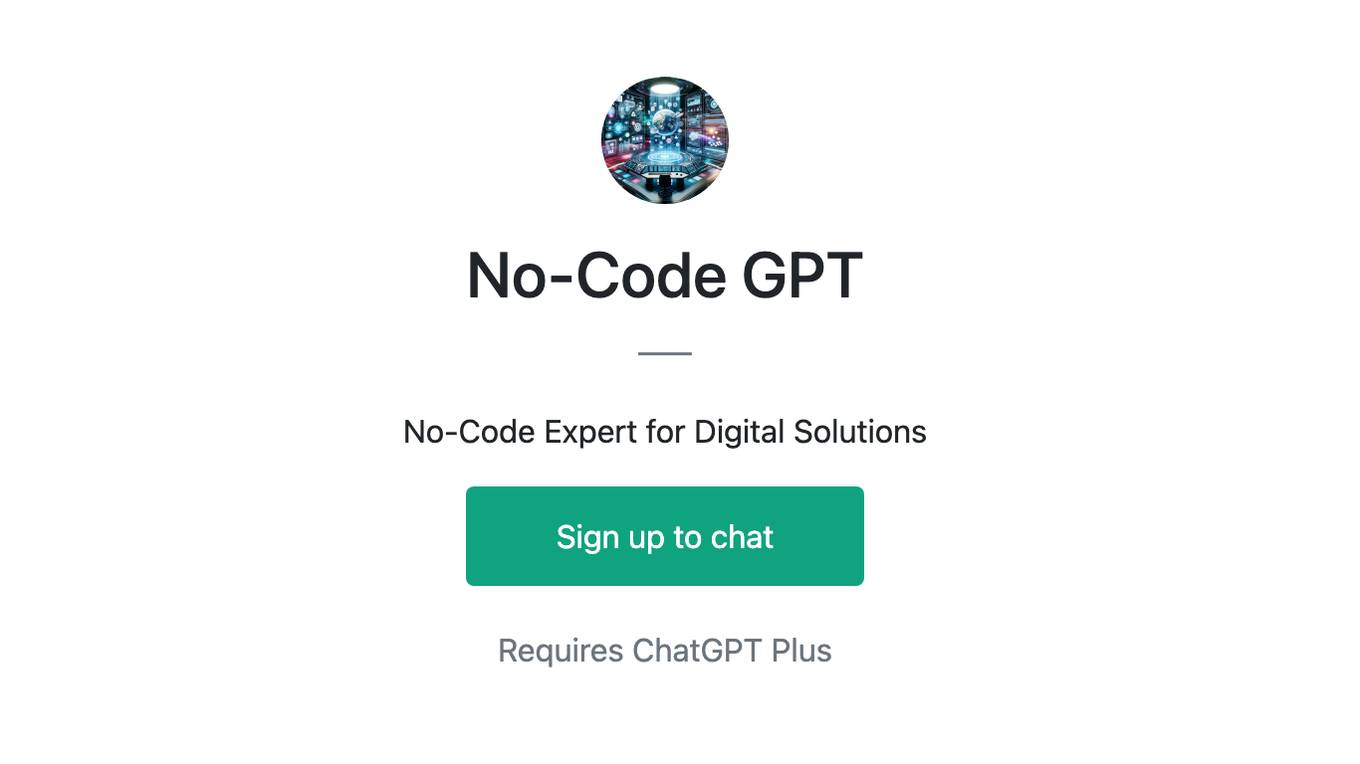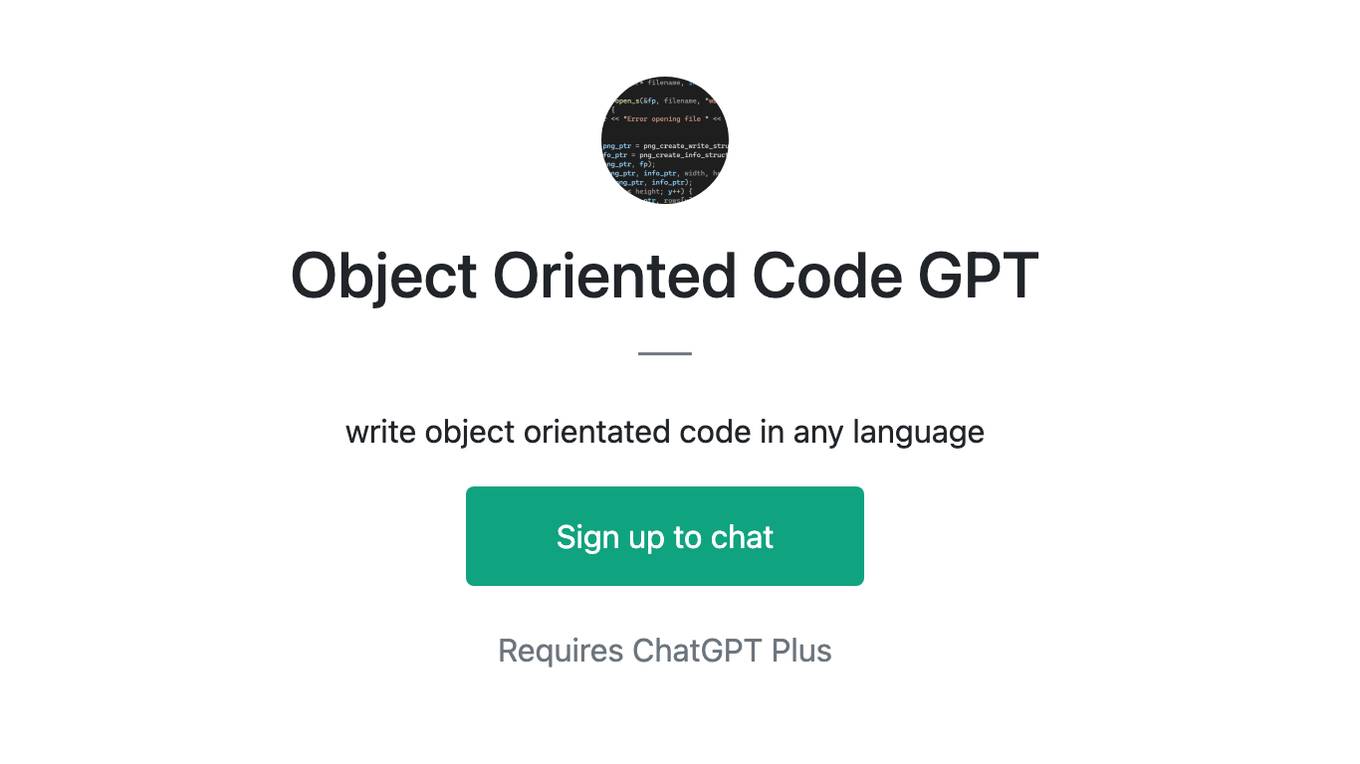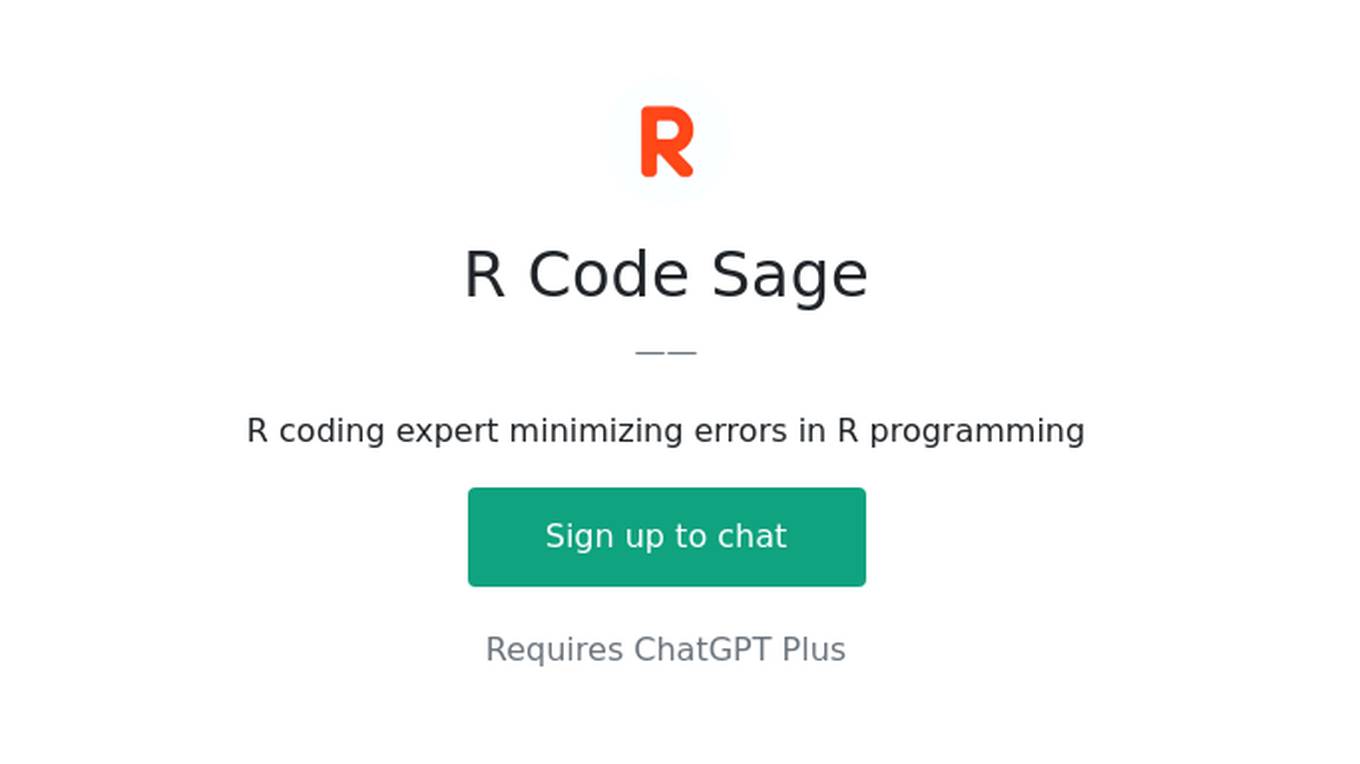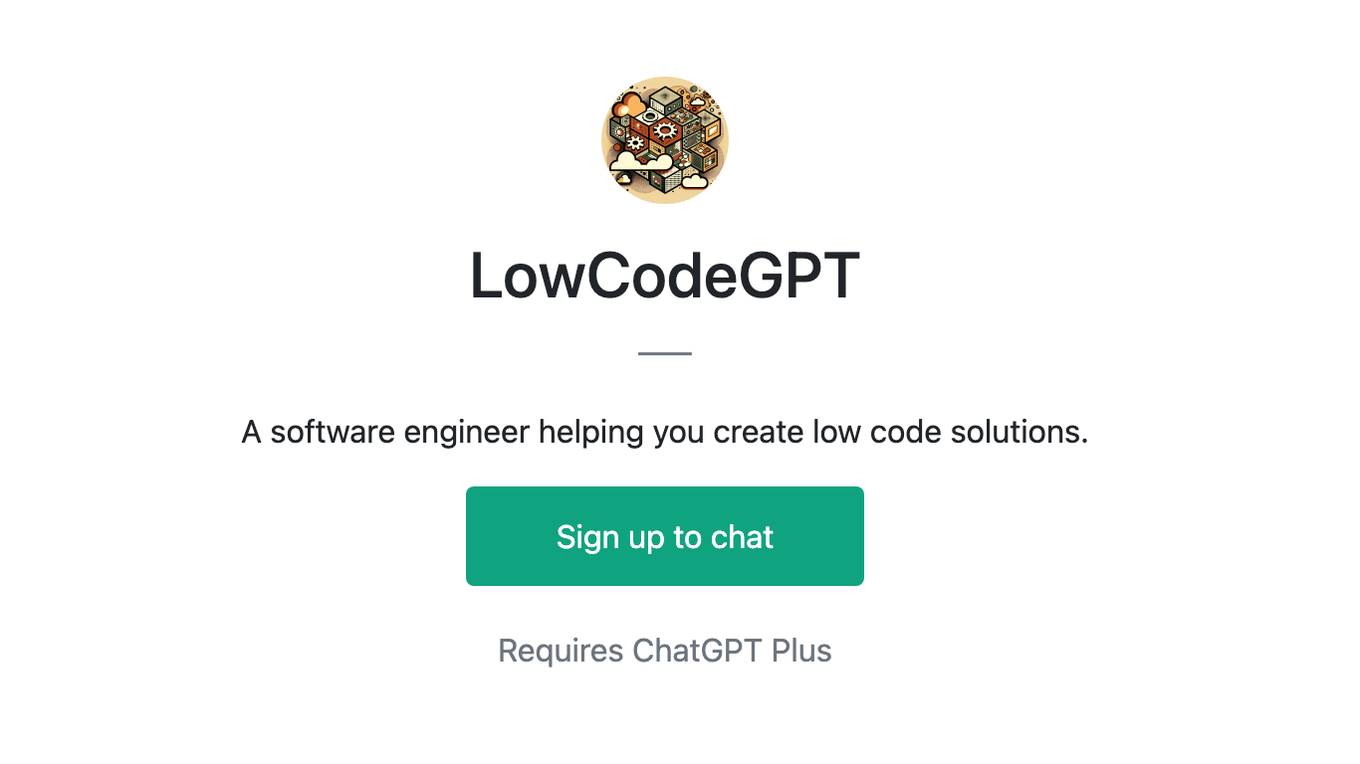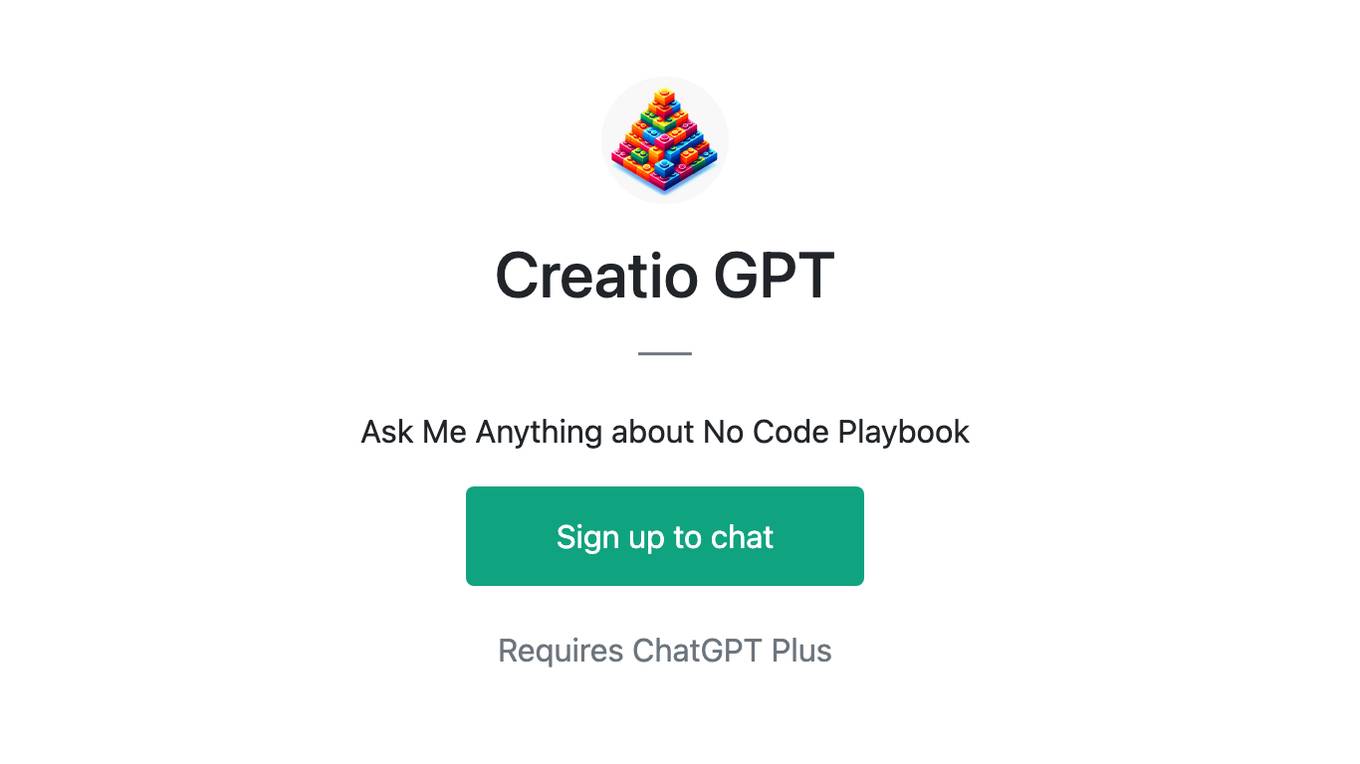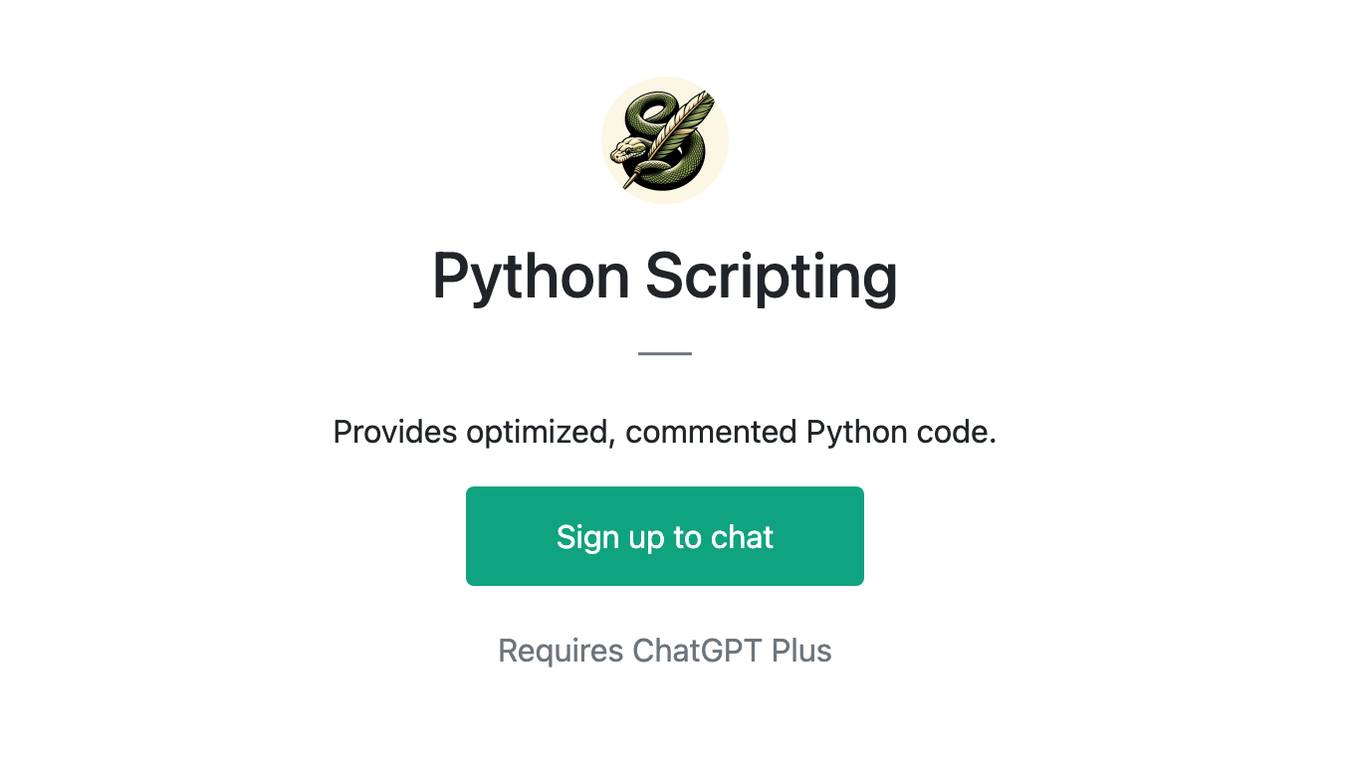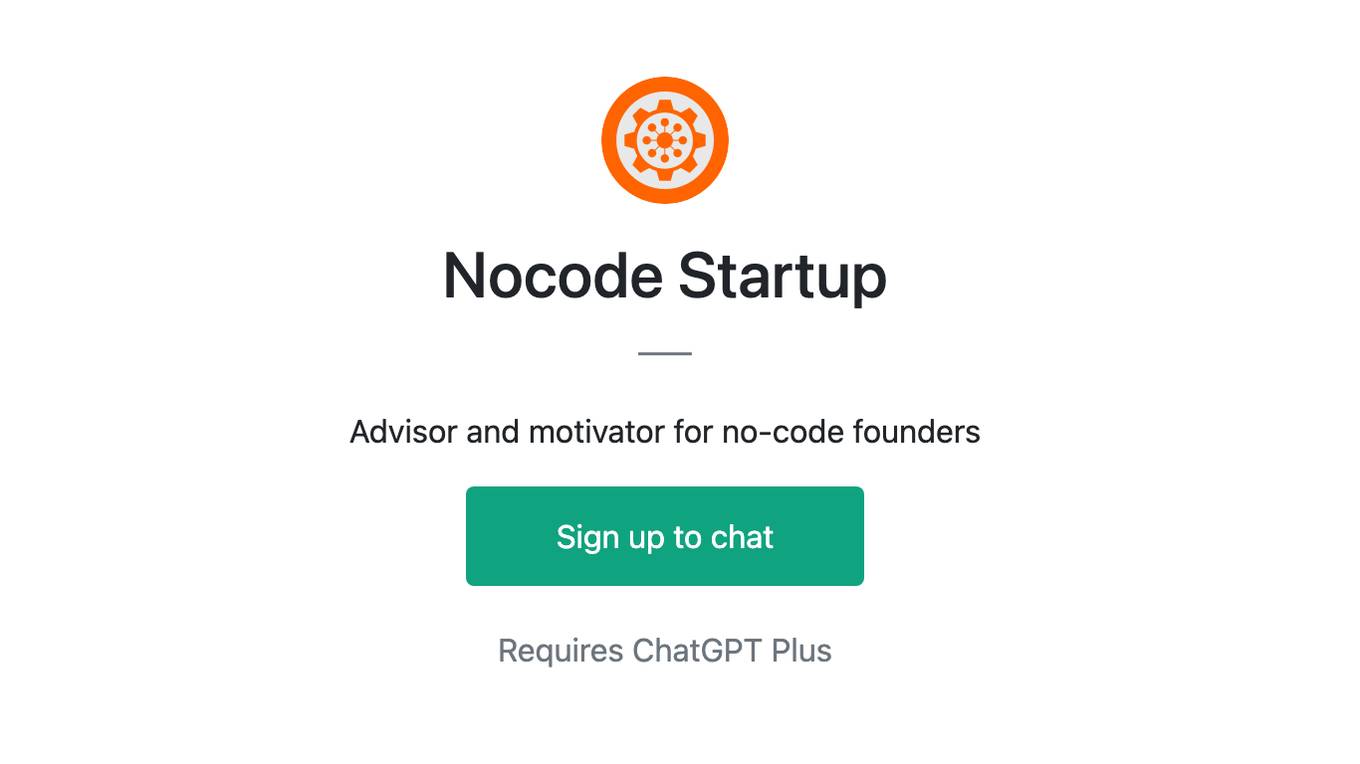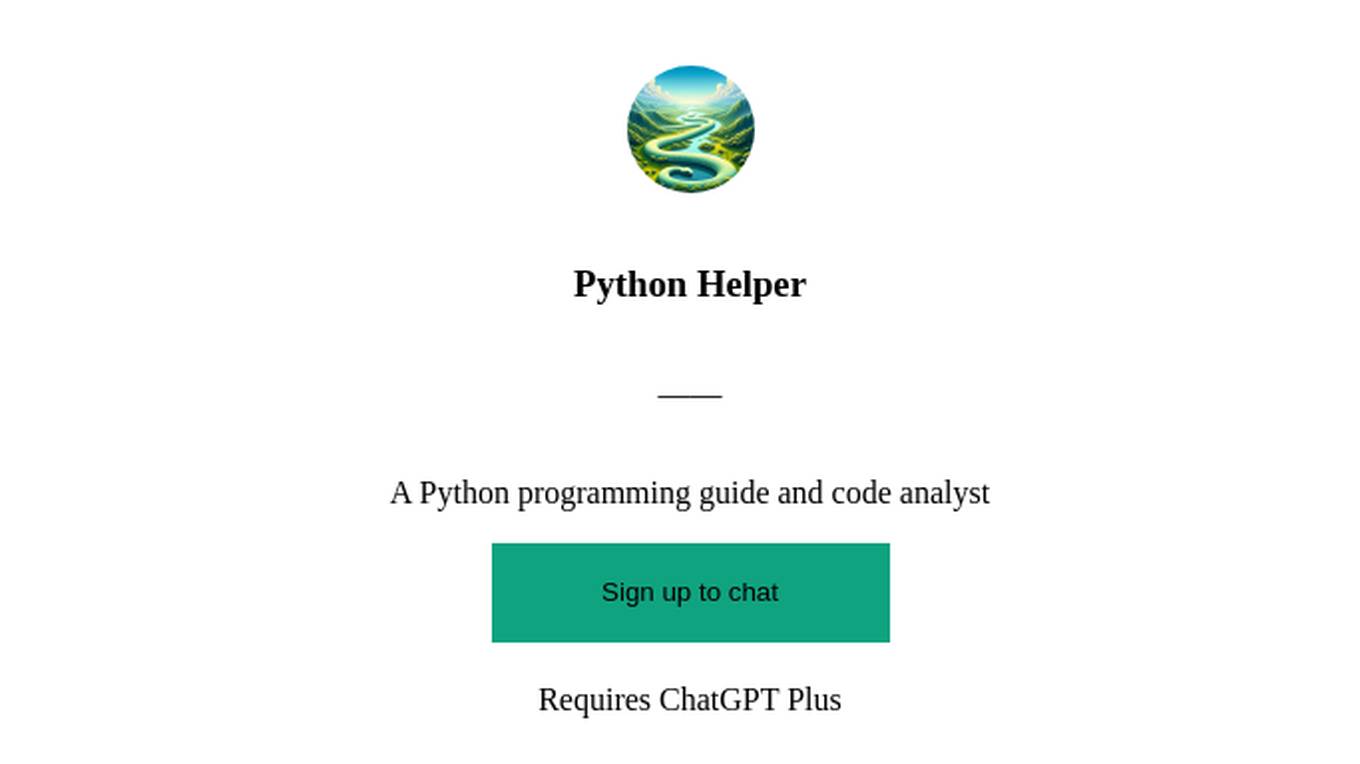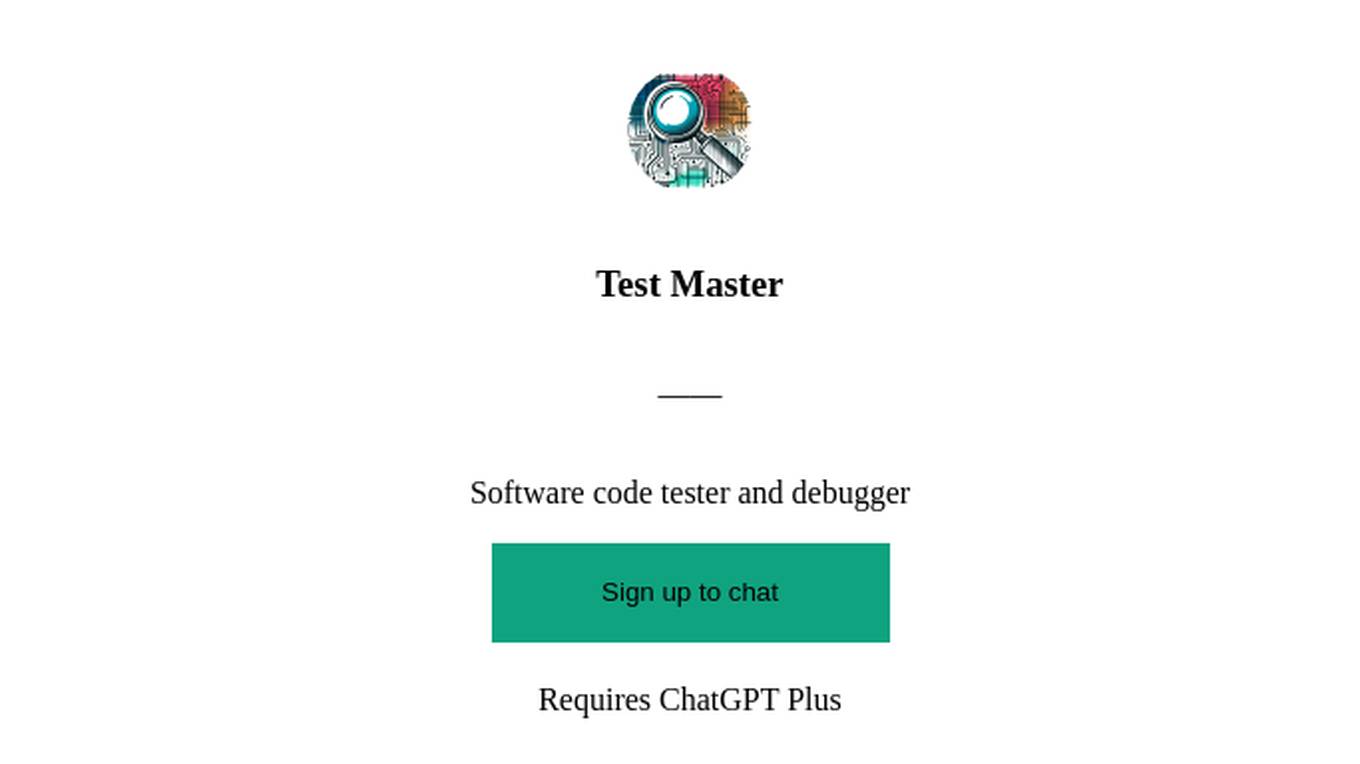Best AI tools for< Automate Code Styling >
20 - AI tool Sites
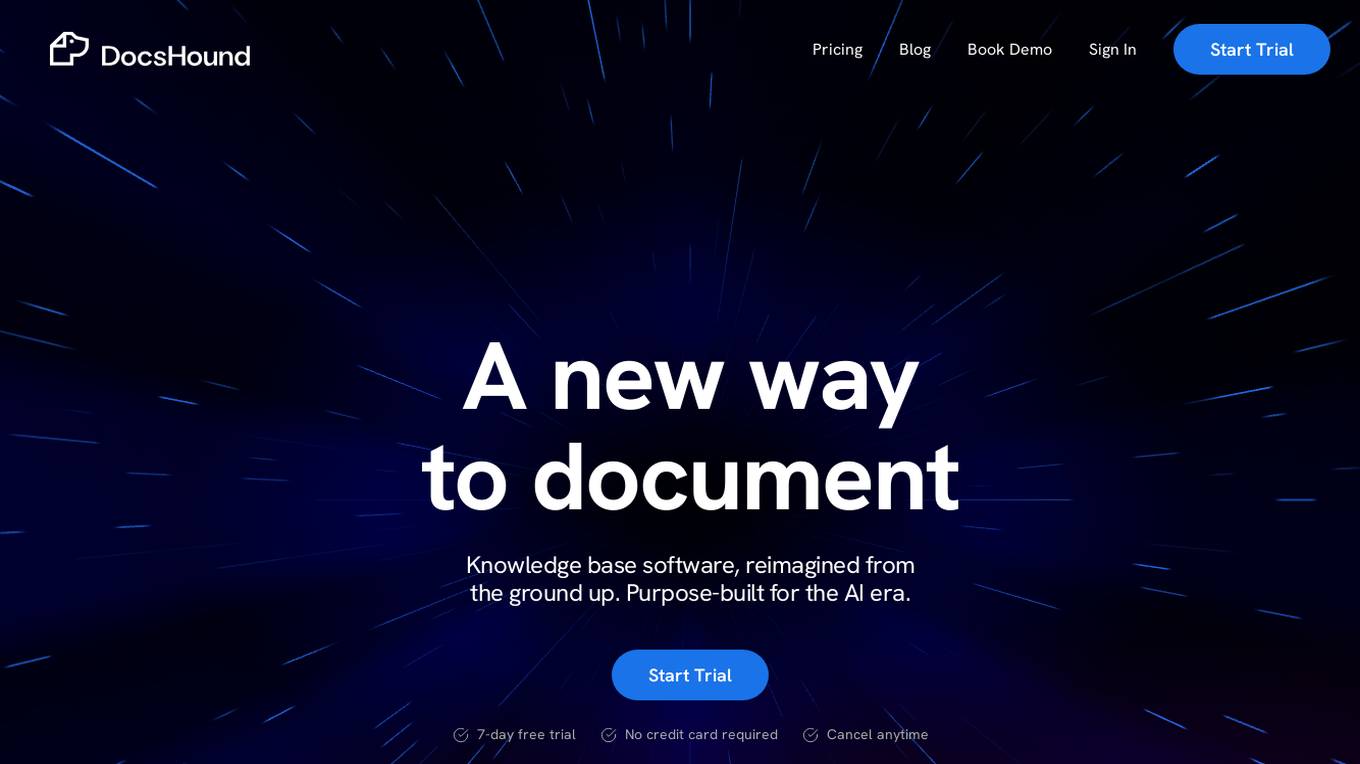
DocsHound
DocsHound is an AI automated documentation platform that revolutionizes knowledge base software by offering a purpose-built solution for the AI era. It simplifies the process of creating manuals by automating the output based on user input. With a focus on product managers, founders, engineers, writers, and customer success professionals, DocsHound provides a modular editing interface with a suite of AI features, efficient publishing workflow, on-brand styling options, and an adaptive AI engine calibrated to user interactions.
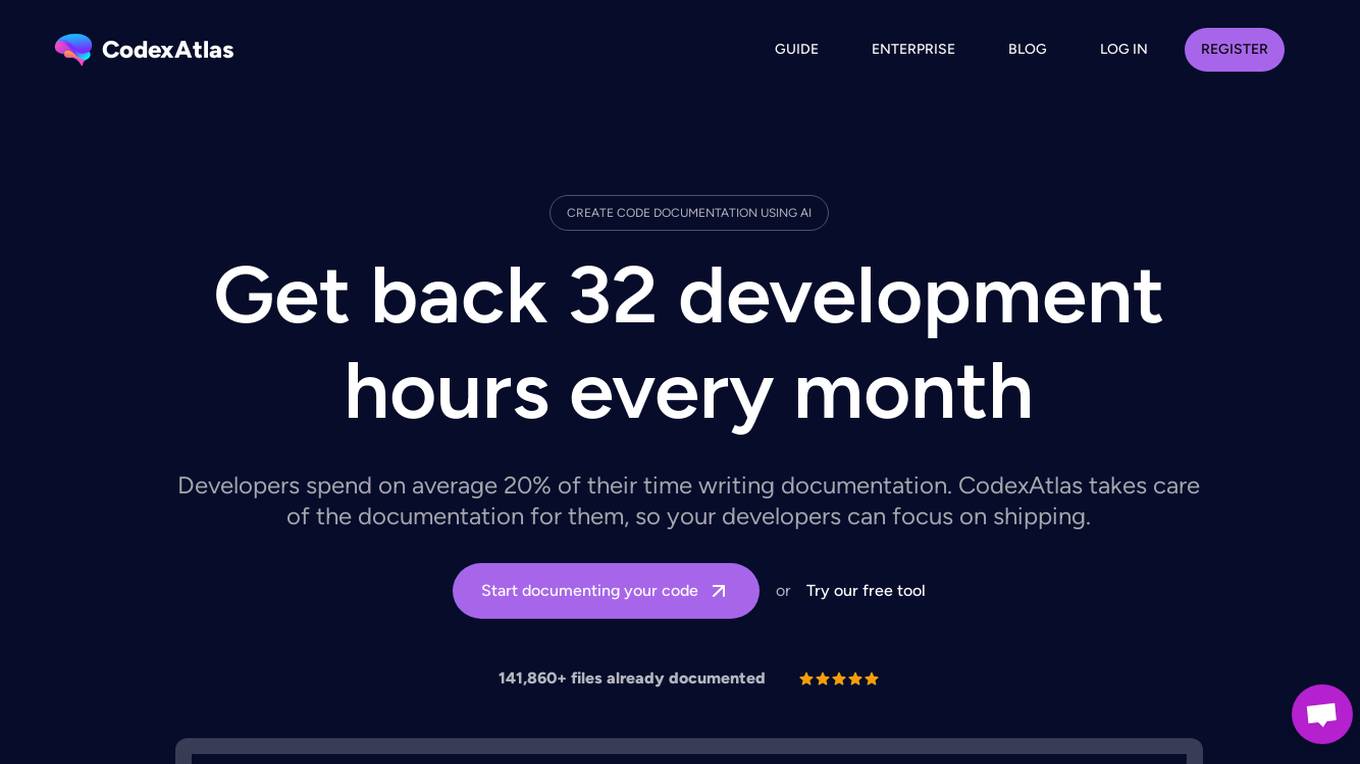
CodexAtlas
CodexAtlas is an AI-powered tool designed to automate code documentation processes. It leverages the latest advancements in Artificial Intelligence to generate and maintain documentation for software projects, freeing developers from the time-consuming task of writing documentation. With features like real-time updates, onboarding time reduction, and use-case detection, CodexAtlas aims to streamline the documentation process and enhance developer productivity. The tool also offers code conversion capabilities, business domain knowledge integration, and the option for on-premise deployment to cater to diverse organizational needs.
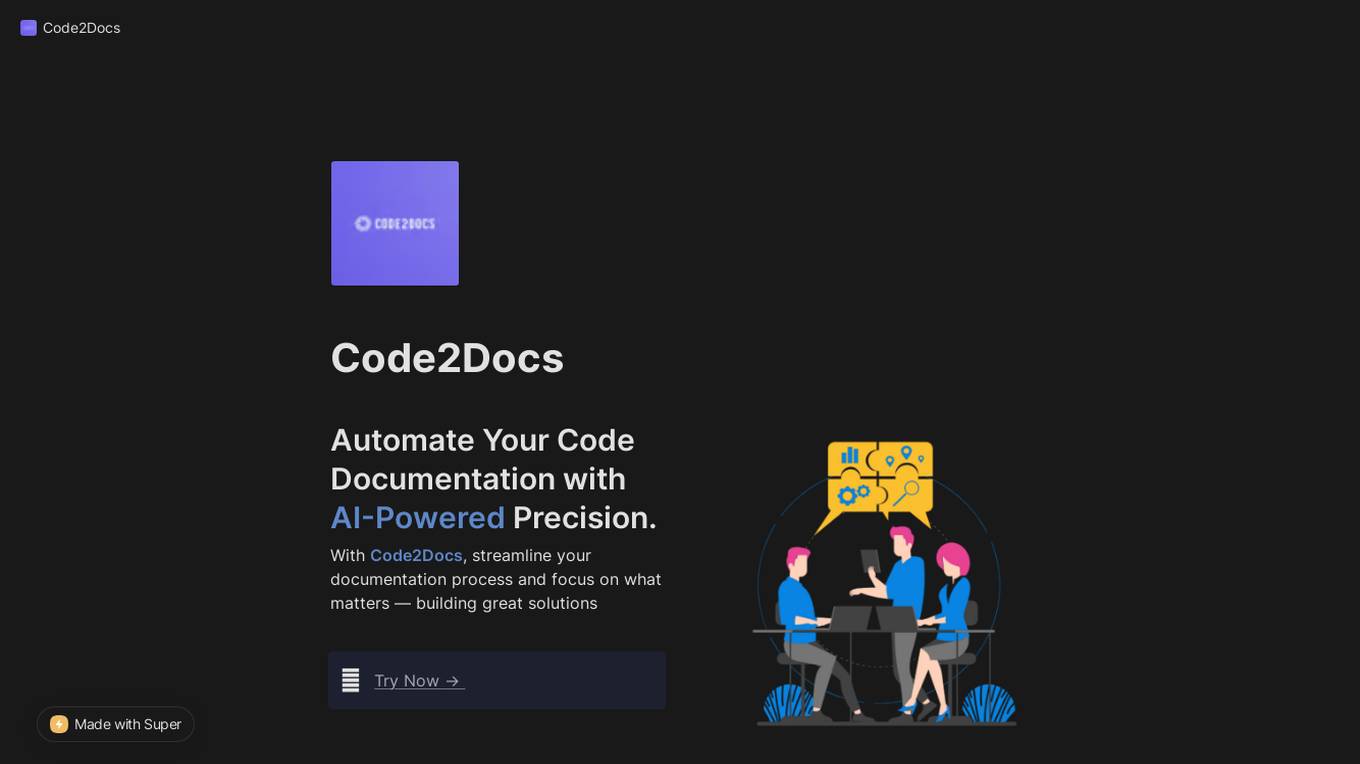
Code2Docs
Code2Docs is an AI-powered tool designed to automate code documentation for software developers. By leveraging advanced AI technology, Code2Docs streamlines the documentation process, transforming complex codebases into clear and comprehensive documentation. With seamless integration with GitHub and an intuitive user interface, Code2Docs aims to make documentation effortless and efficient, saving time and reducing technical debt for developers.
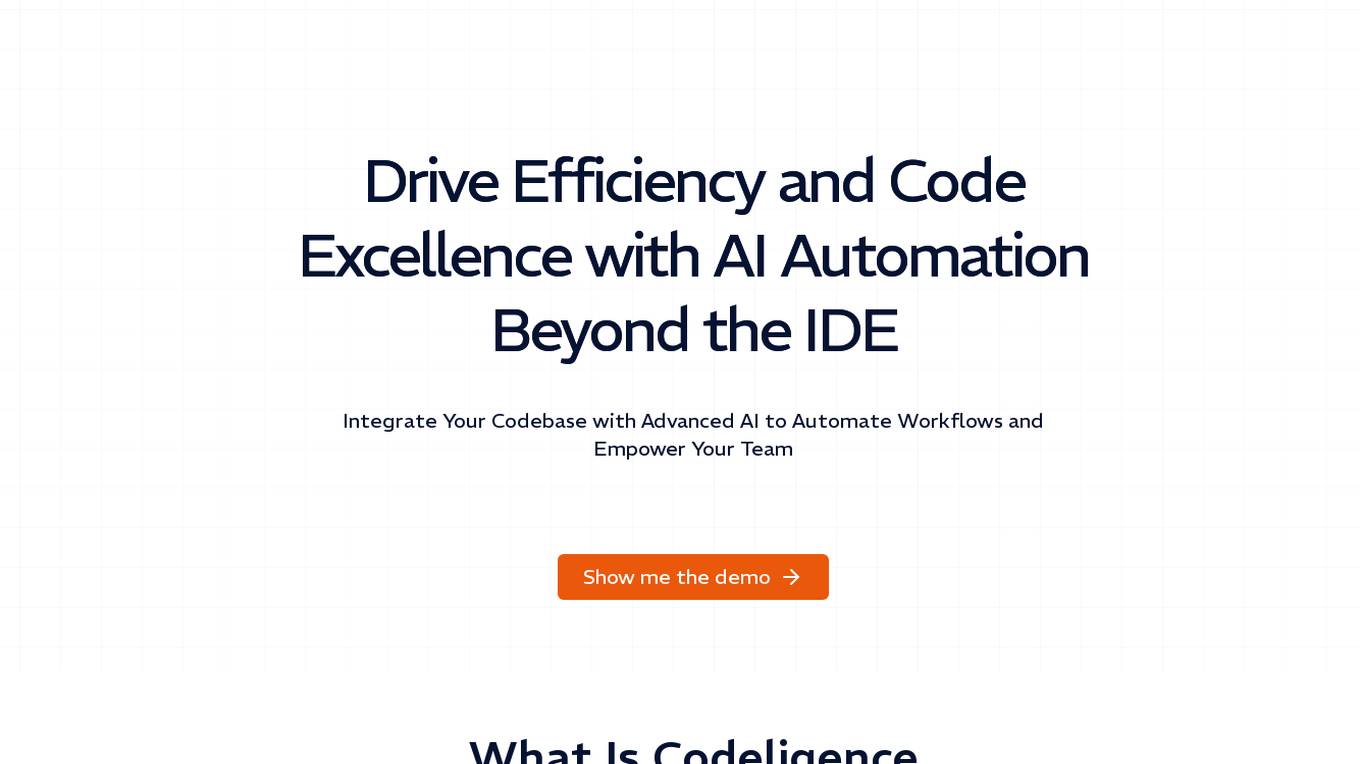
Codeligence
Codeligence is an AI tool that enables users to connect their code with artificial intelligence. The platform offers chat and automation features to streamline the integration of AI into coding projects. With Codeligence, users can easily incorporate AI functionalities into their applications, enhancing their capabilities and efficiency.
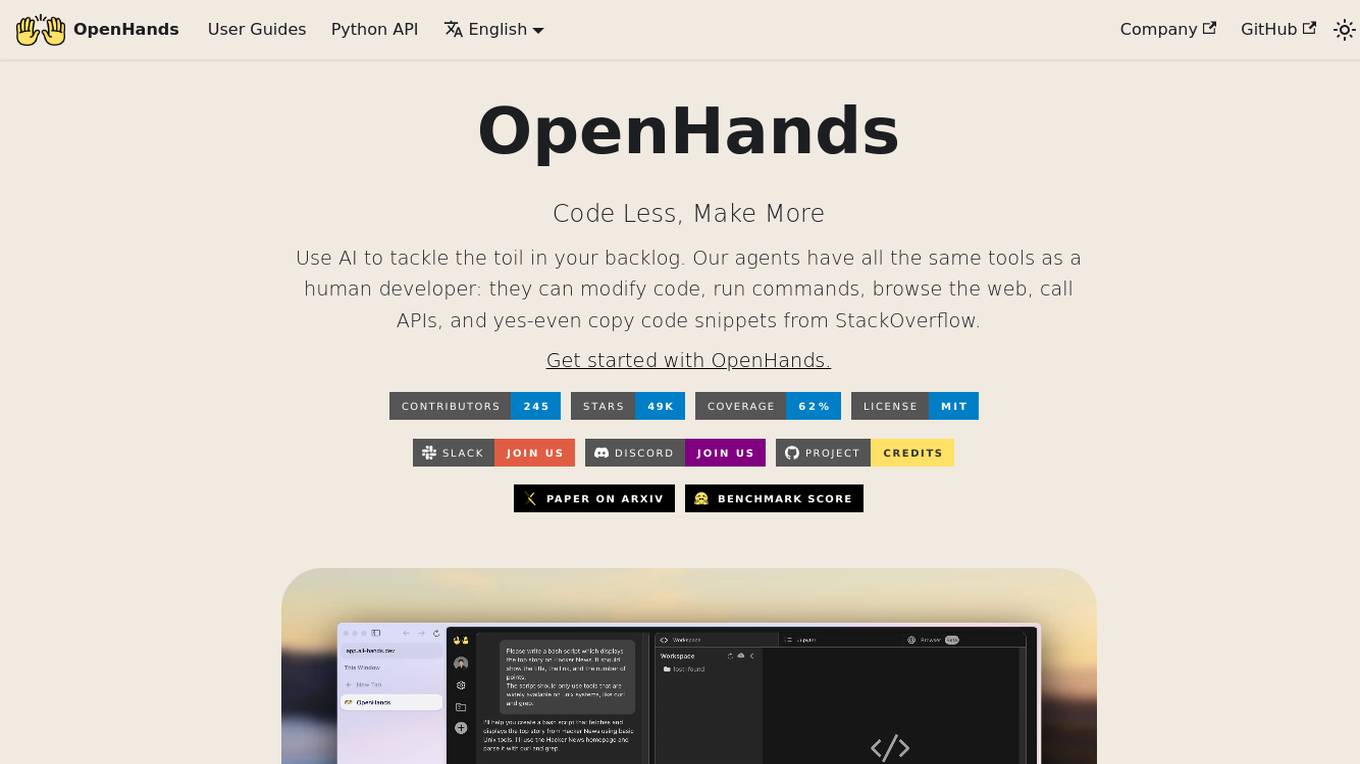
OpenHands
OpenHands is an AI tool developed by All Hands AI, Inc. that empowers users to streamline their development process by leveraging artificial intelligence. The tool allows users to automate tasks typically performed by human developers, such as modifying code, running commands, browsing the web, calling APIs, and even copying code snippets from StackOverflow. OpenHands aims to help users save time and increase productivity by handling repetitive and time-consuming tasks efficiently.
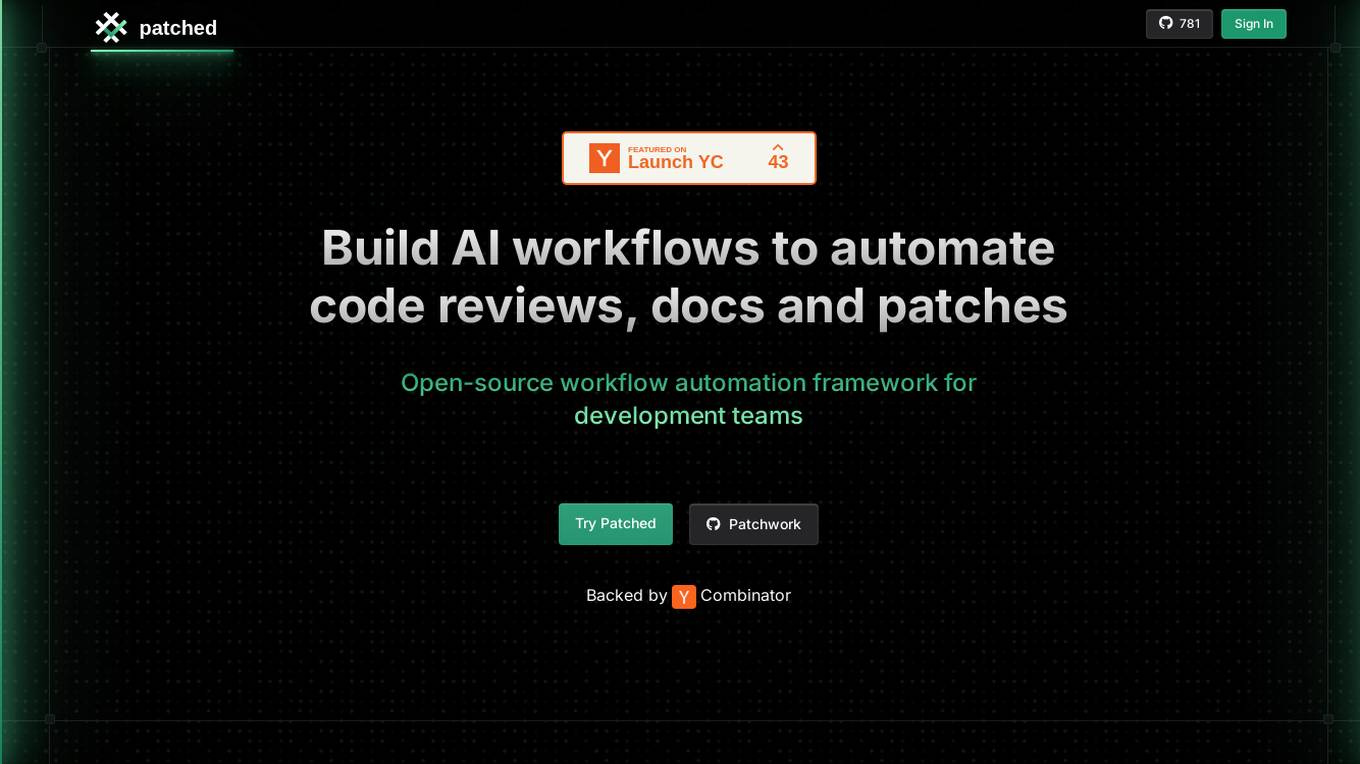
Patched
Patched is an open-source workflow automation framework designed for development teams to build AI workflows that automate code reviews, documentation, and patches. It offers ready-to-go patchflows or the ability to create custom ones to accelerate mundane development tasks. Patched integrates seamlessly with popular platforms like Gitlab, GitHub, Jira, and more, allowing users to improve code quality, fix bugs, and create tickets efficiently. The application is privacy-focused, allowing users to deploy it within their own infrastructure for complete privacy. Patched is free and open-source, offering customization options via code or a no-code builder.
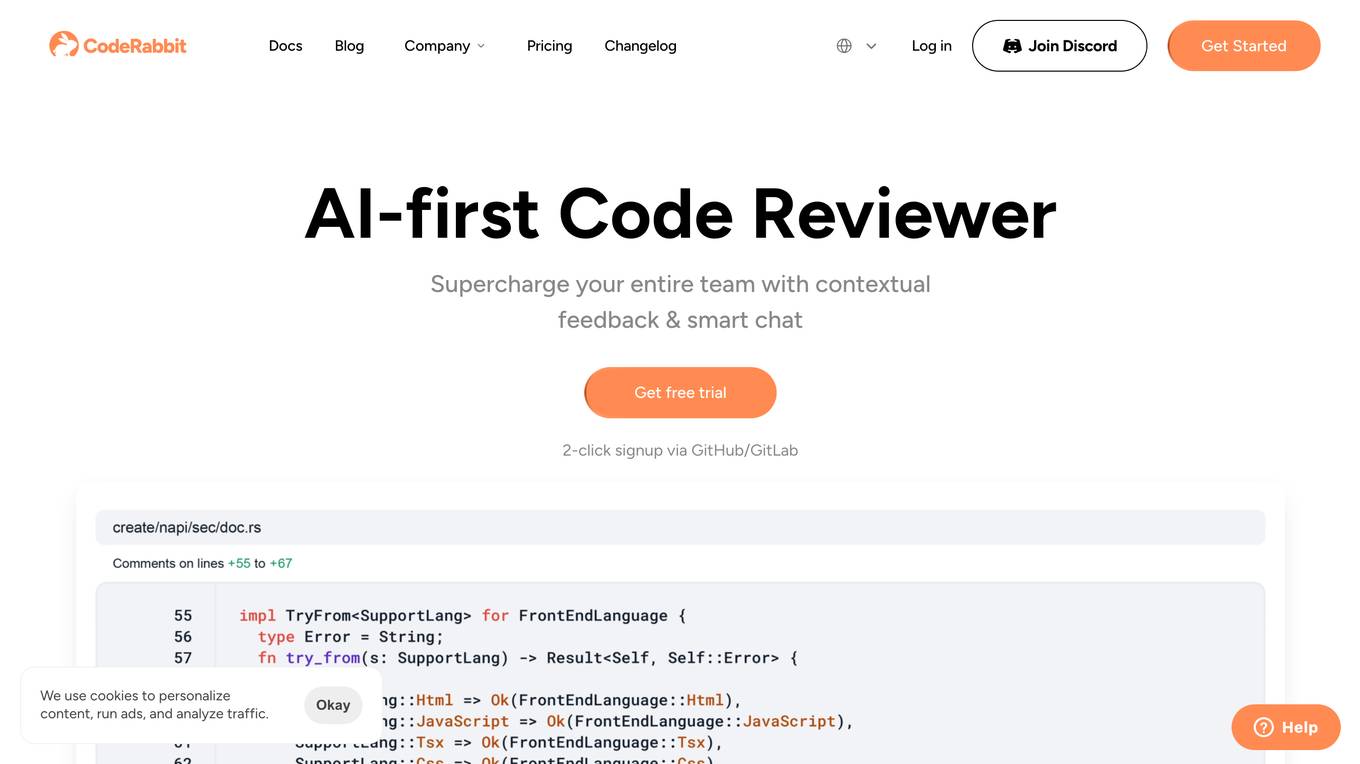
CodeRabbit
CodeRabbit is an innovative AI code review platform that streamlines and enhances the development process. By automating reviews, it dramatically improves code quality while saving valuable time for developers. The system offers detailed, line-by-line analysis, providing actionable insights and suggestions to optimize code efficiency and reliability. Trusted by hundreds of organizations and thousands of developers daily, CodeRabbit has processed millions of pull requests. Backed by CRV, CodeRabbit continues to revolutionize the landscape of AI-assisted software development.
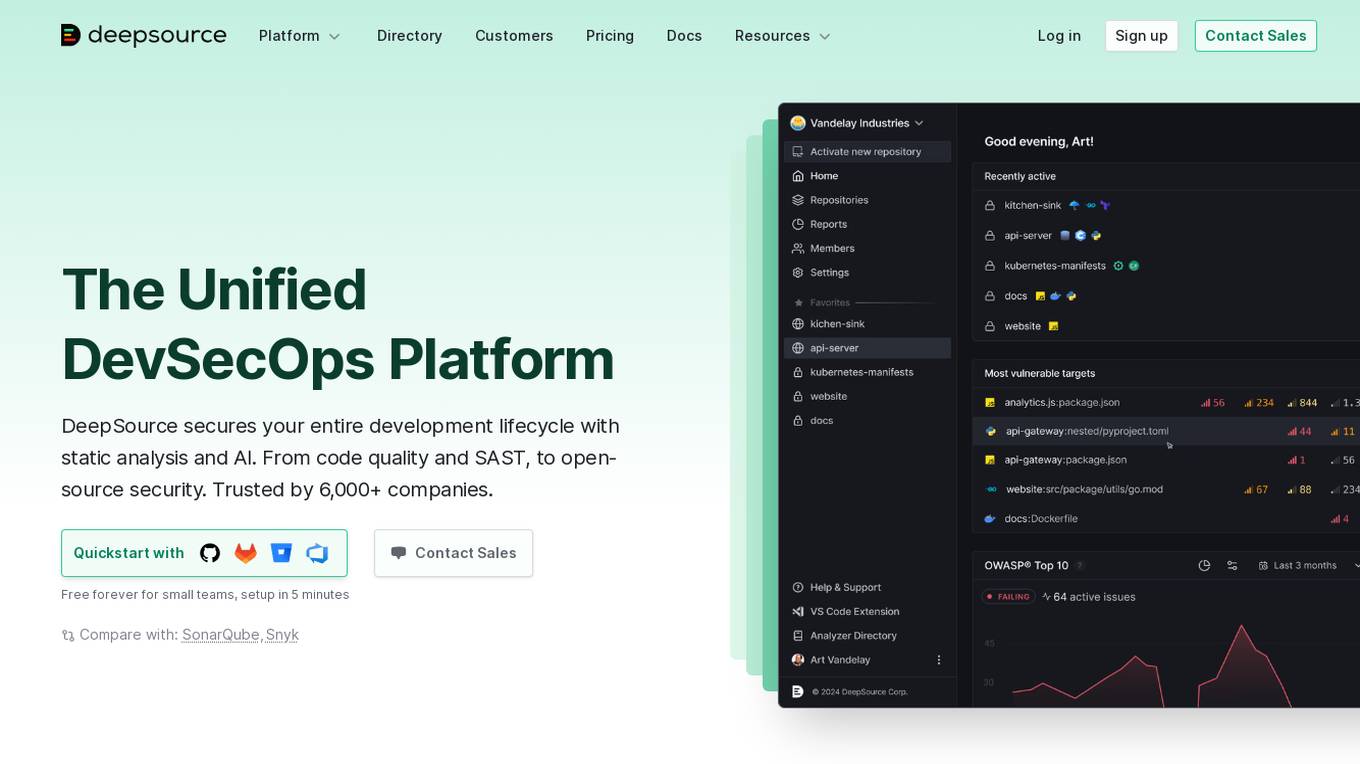
DeepSource
DeepSource is a Unified DevSecOps Platform that secures the entire development lifecycle with static analysis and AI. It offers code quality and SAST, open-source security, and is trusted by over 6,000 companies. The platform helps in finding and fixing security vulnerabilities before code is merged, with a low false-positive rate and customizable security gates for pull requests. DeepSource is built for modern software development, providing features like Autofix™ AI, code coverage, and integrations with popular tools like Jira and GitHub Issues. It offers detailed reports, issue suppression, and metric thresholds to ensure clean and secure code shipping.
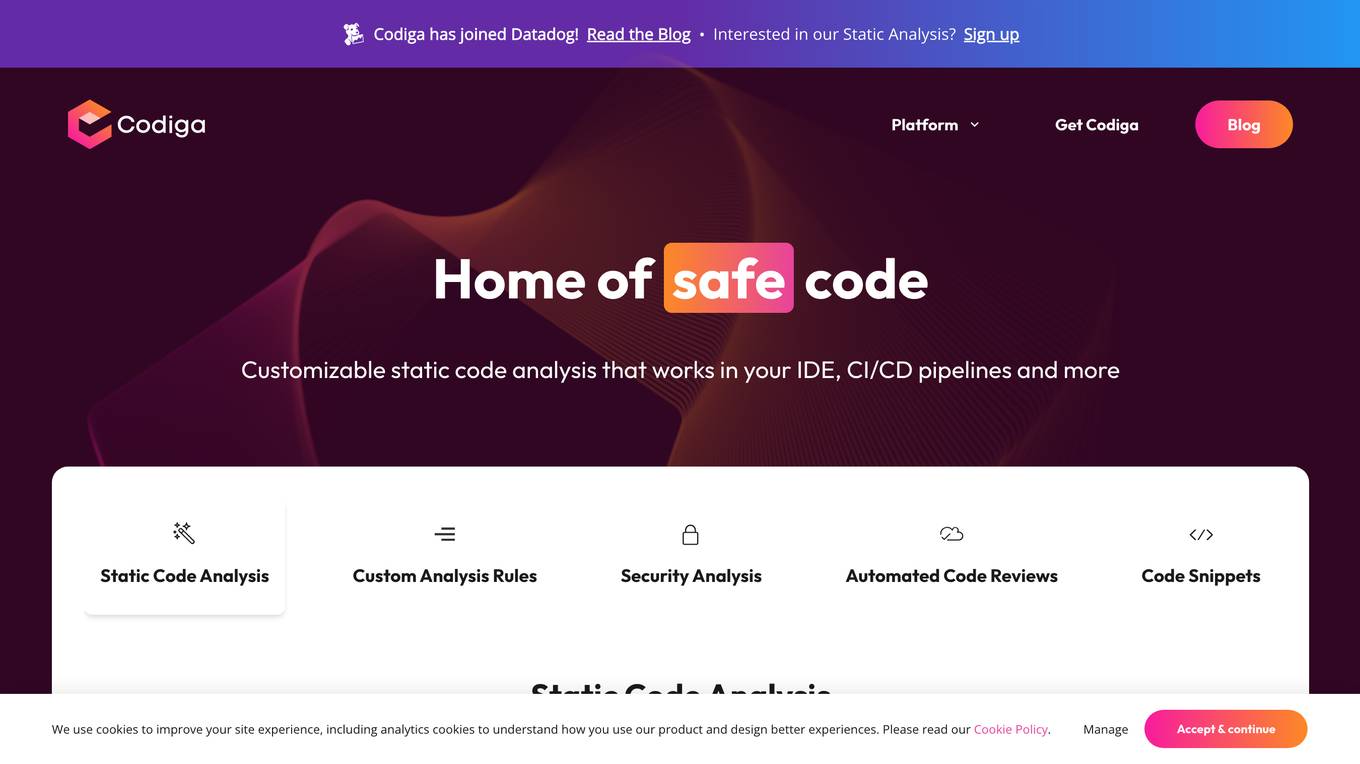
Codiga
Codiga is a static code analysis tool that helps developers write clean, safe, and secure code. It works in real-time in your IDE and CI/CD pipelines, and it can be customized to meet your specific needs. Codiga supports a wide range of languages and frameworks, and it integrates with popular tools like GitHub, GitLab, and Bitbucket.

Greptile
Greptile is an AI tool designed to assist developers in code review processes. It integrates with GitHub to review pull requests and identify bugs, antipatterns, and other issues in the codebase. By leveraging AI technology, Greptile aims to streamline the code review process and improve code quality.
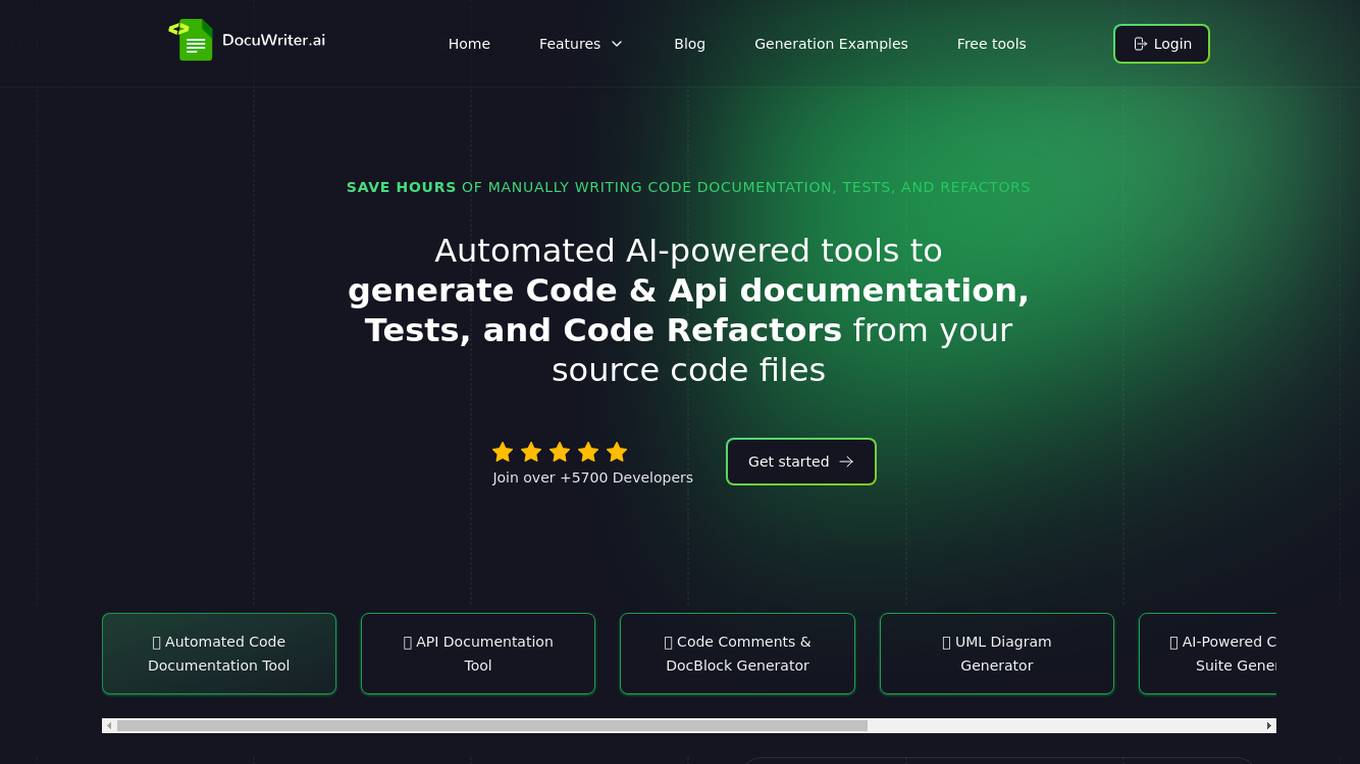
DocuWriter.ai
DocuWriter.ai is an AI-powered tool that helps developers automate code documentation, testing, and refactoring. It uses natural language processing and machine learning algorithms to generate accurate and consistent documentation, test suites, and optimized code. DocuWriter.ai integrates with popular programming languages and development environments, making it easy for developers to improve the quality and efficiency of their code.

DevAI
DevAI is an AI-powered platform designed to assist developers in enhancing their productivity and efficiency. It offers a wide range of tools and features to streamline the development process, from code generation to debugging. With its advanced algorithms and machine learning capabilities, DevAI aims to revolutionize the way developers work and collaborate on projects.
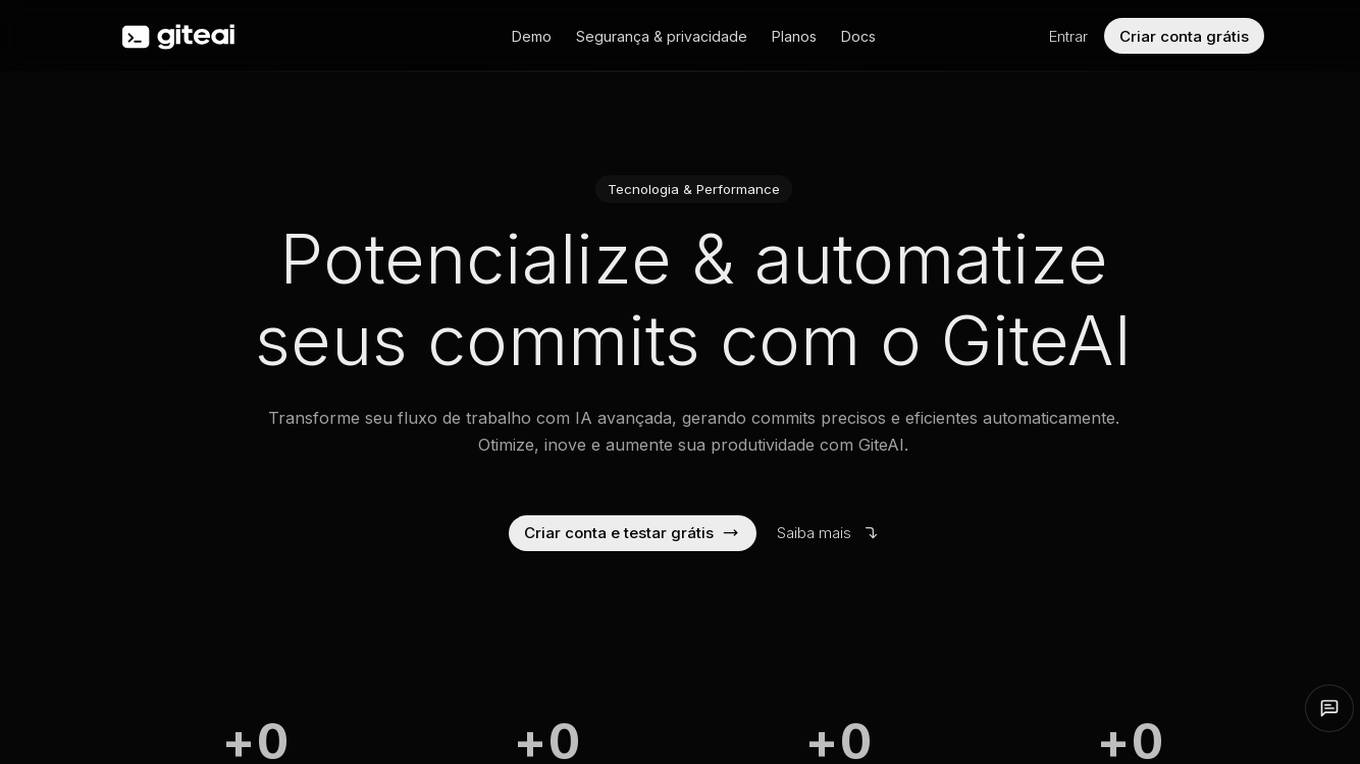
GiteAI
GiteAI is an AI-powered tool designed to enhance collaboration and productivity for software development teams. It leverages machine learning algorithms to automate code reviews, identify bugs, and suggest improvements in real-time. With GiteAI, developers can streamline their workflow, reduce manual efforts, and ensure code quality. The platform integrates seamlessly with popular version control systems like GitHub, GitLab, and Bitbucket, providing actionable insights and analytics to drive continuous improvement.
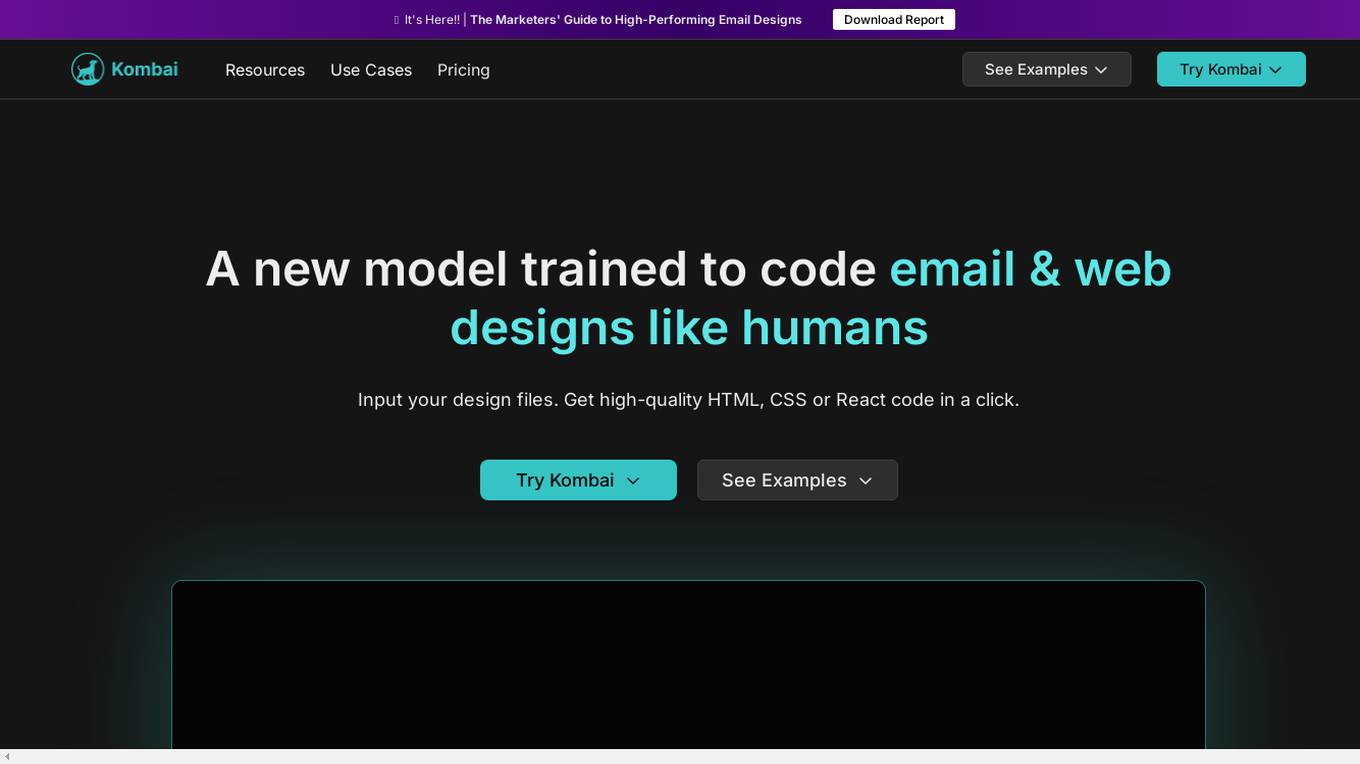
Kombai
Kombai is an AI tool designed to code email and web designs like humans. It uses deep learning and heuristics models to interpret UI designs and generate high-quality HTML, CSS, or React code with human-like names for classes and components. Kombai aims to help developers save time by automating the process of writing UI code based on design files without the need for tagging, naming, or grouping elements. The tool is currently in 'public research preview' and is free for individual developers to use.

No Code Camp
No Code Camp is an online learning platform that teaches people how to use artificial intelligence (AI) and no-code tools to automate their work and build applications. The platform offers a live, 5-week cohort-based course that covers the essentials of no-code development, including data architecture, interface design, AI scaling, and no-code automation. The course is designed for people with no prior coding experience and is taught by experienced instructors who have built and scaled digital products using no-code tools.
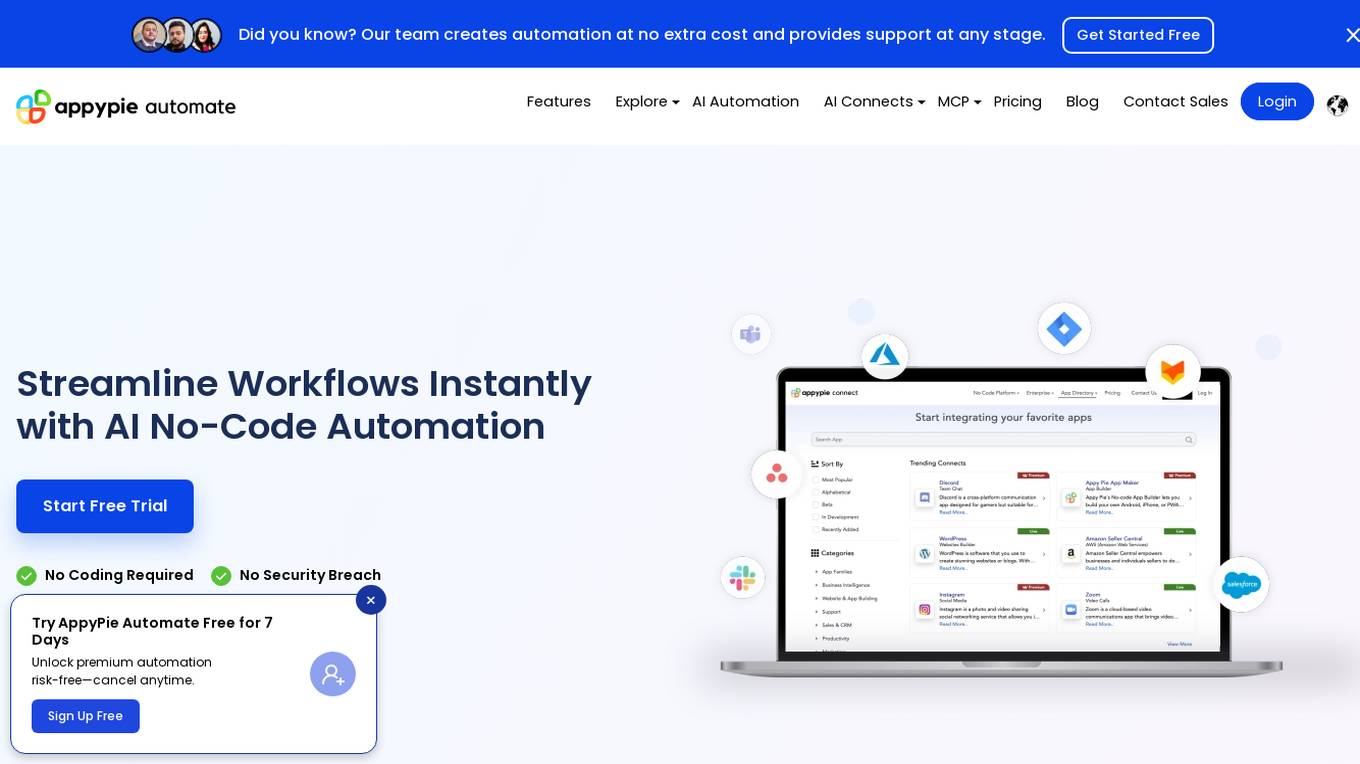
Appy Pie Automate
Appy Pie Automate is an AI-driven workflow automation platform that allows users to connect their favorite apps and services without writing a single line of code. It serves businesses of various sizes and multiple domains, providing smooth app integration services to its customers. The platform offers features like multi-platform app integrations, custom integrations, security and compliance, and comprehensive automation possibilities. Users can create workflows, automate actions, sync data, and enhance productivity with Appy Pie Automate's user-friendly interface and extensive app integration library.
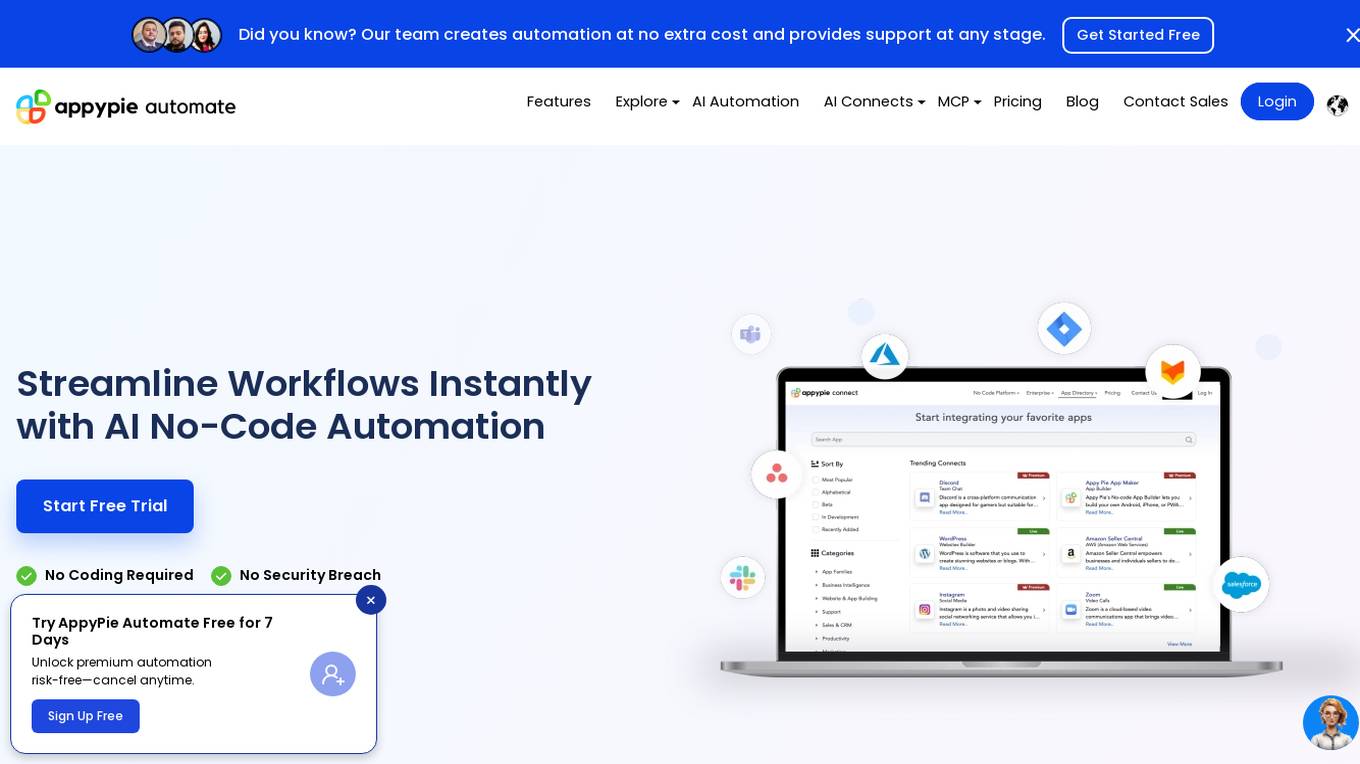
Appy Pie Automate
Appy Pie Automate is an AI workflow automation platform that allows users to connect their favorite apps and services without writing a single line of code. It offers versatile no-code workflow automation, out-of-the-box and custom integrations, and comprehensive automation possibilities. The platform streamlines business integration, supports multi-platform app integrations, and ensures security and compliance. Appy Pie Automate is designed to simplify workflow automation, enhance productivity, and revolutionize business operations.
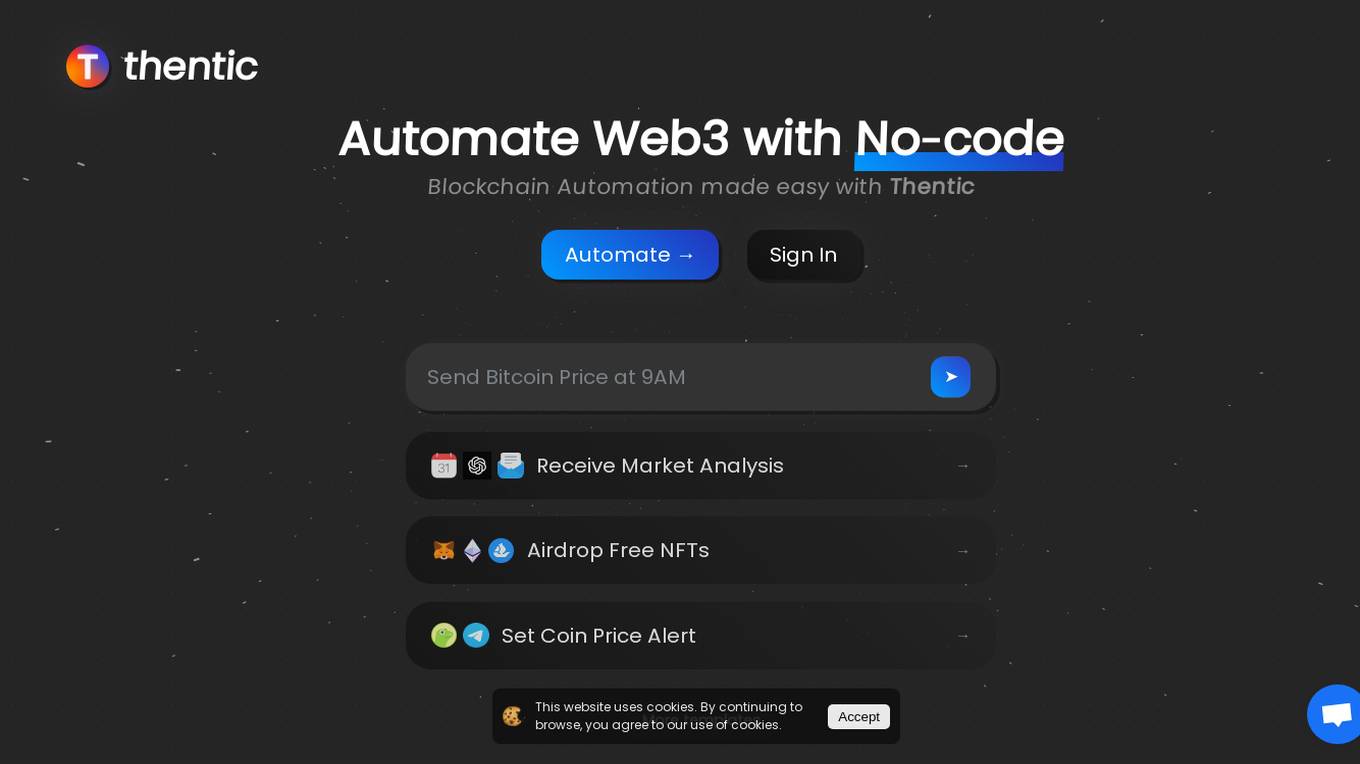
Thentic
Thentic is a no-code automation platform for Web3. It allows users to automate tasks such as receiving market analysis, airdropping free NFTs, setting coin price alerts, tracking new transactions, analyzing DeFi data, getting paid and notified, creating AI-generated NFTs, receiving crypto news, randomizing NFT attributes, and developing Web3 APIs. Thentic supports hundreds of blockchains with prebuilt integrations.
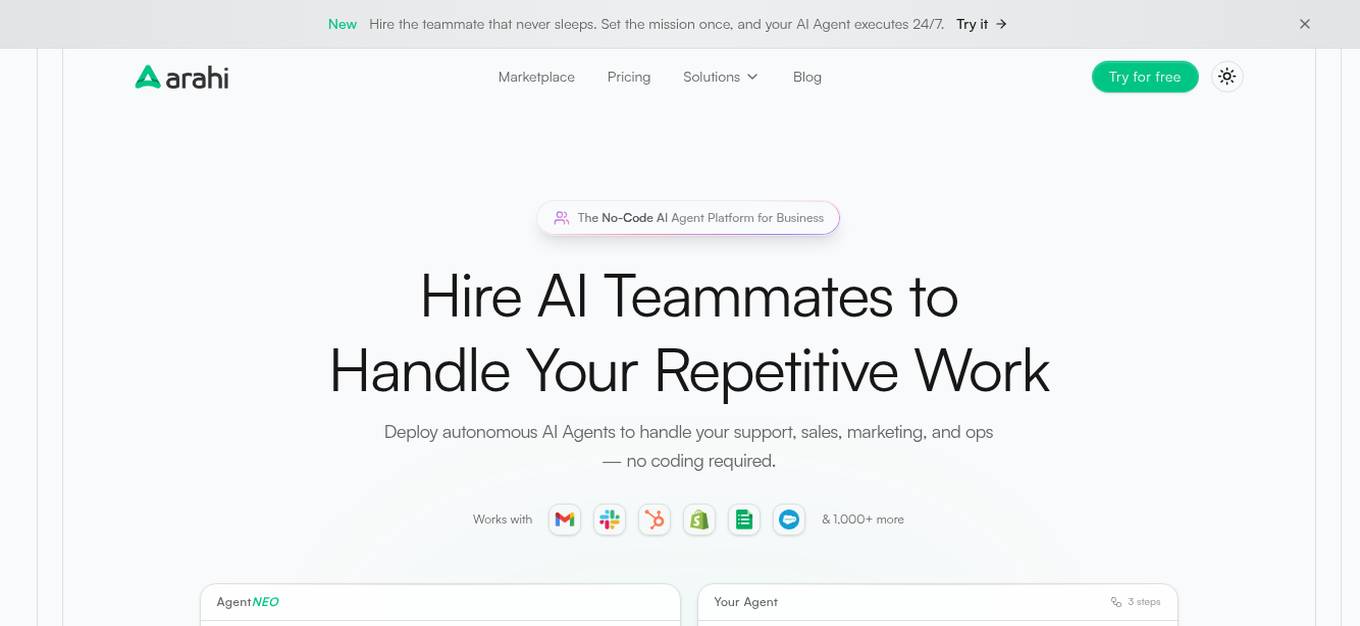
Arahi AI
Arahi AI is a no-code AI platform that allows businesses to build autonomous AI agents to handle support, sales, marketing, and operations tasks without the need for coding. The platform enables users to describe tasks in plain English, connect to existing apps, and deploy AI teammates that work 24/7. Arahi AI offers a wide range of pre-built automation templates, end-to-end encryption for data protection, and transparent pricing plans to help businesses save time and resources.
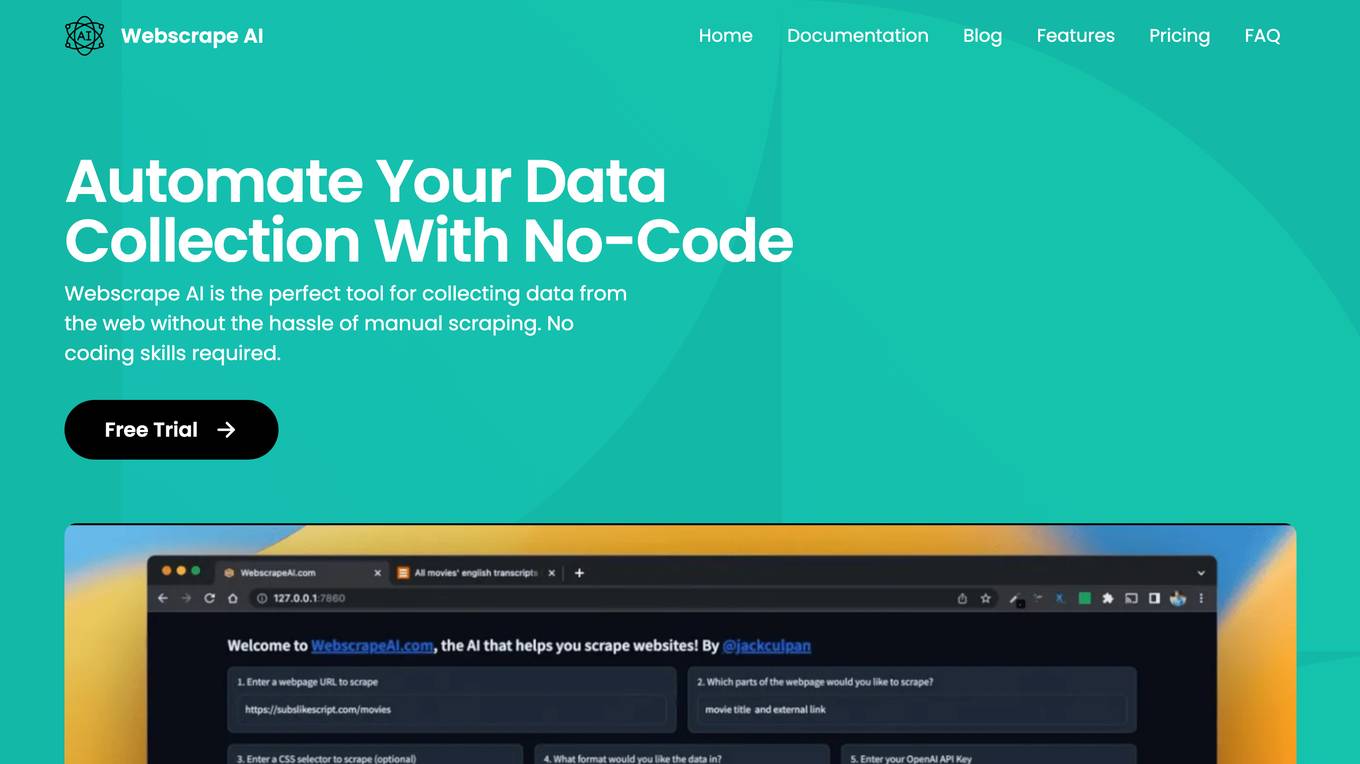
Webscrape AI
Webscrape AI is a no-code web scraping tool that allows users to collect data from websites without writing any code. It is easy to use, accurate, and affordable, making it a great option for businesses of all sizes. With Webscrape AI, you can automate your data collection process and free up your time to focus on other tasks.
0 - Open Source AI Tools
20 - OpenAI Gpts
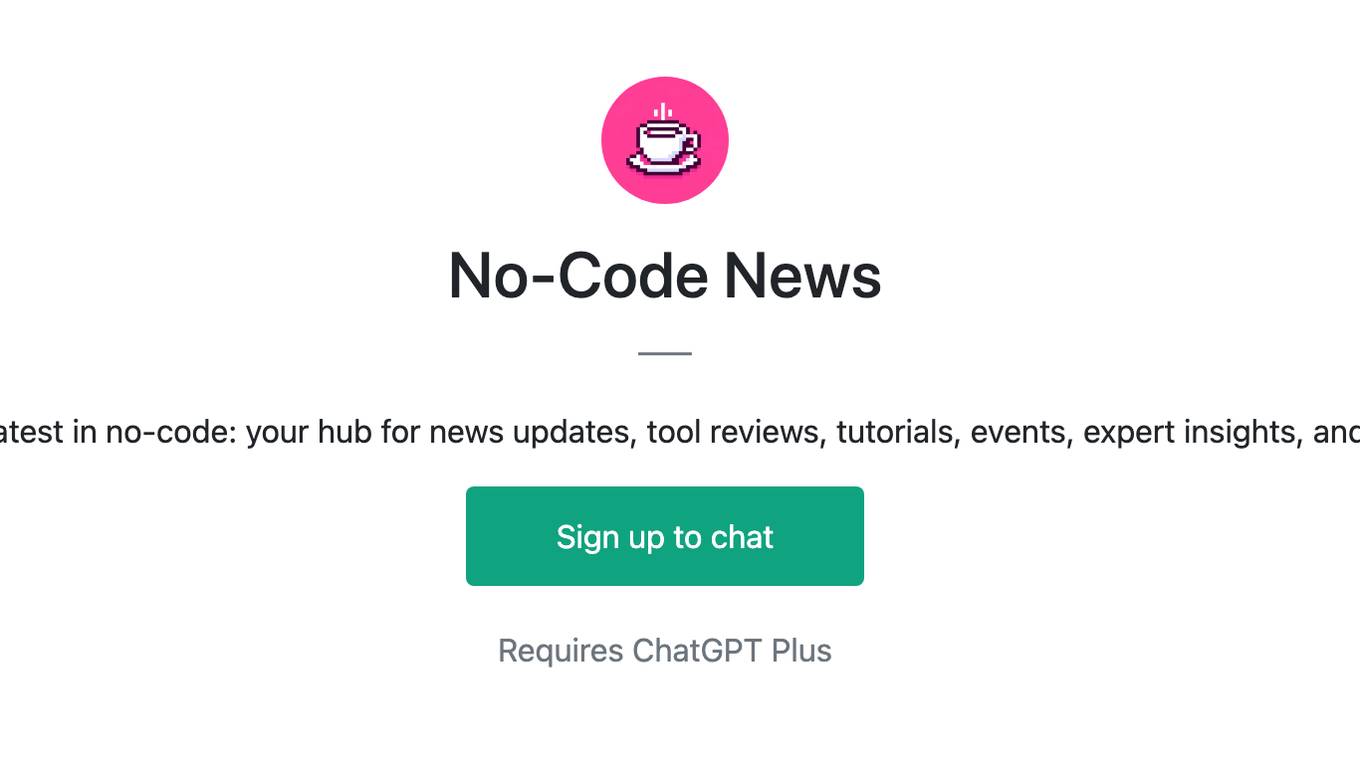
No-Code News
No-code GPT. Explore the latest in no-code: your hub for news updates, tool reviews, tutorials, events, expert insights, and no-code success stories
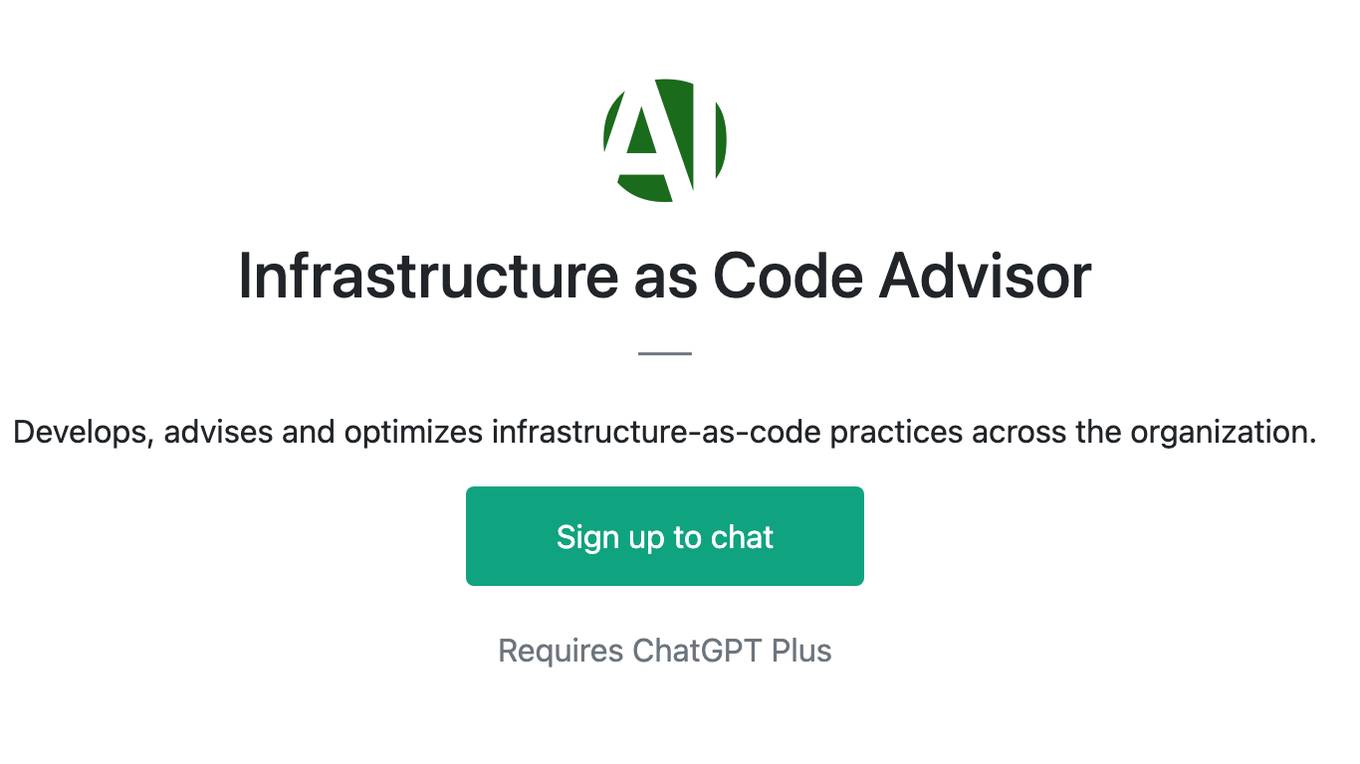
Infrastructure as Code Advisor
Develops, advises and optimizes infrastructure-as-code practices across the organization.
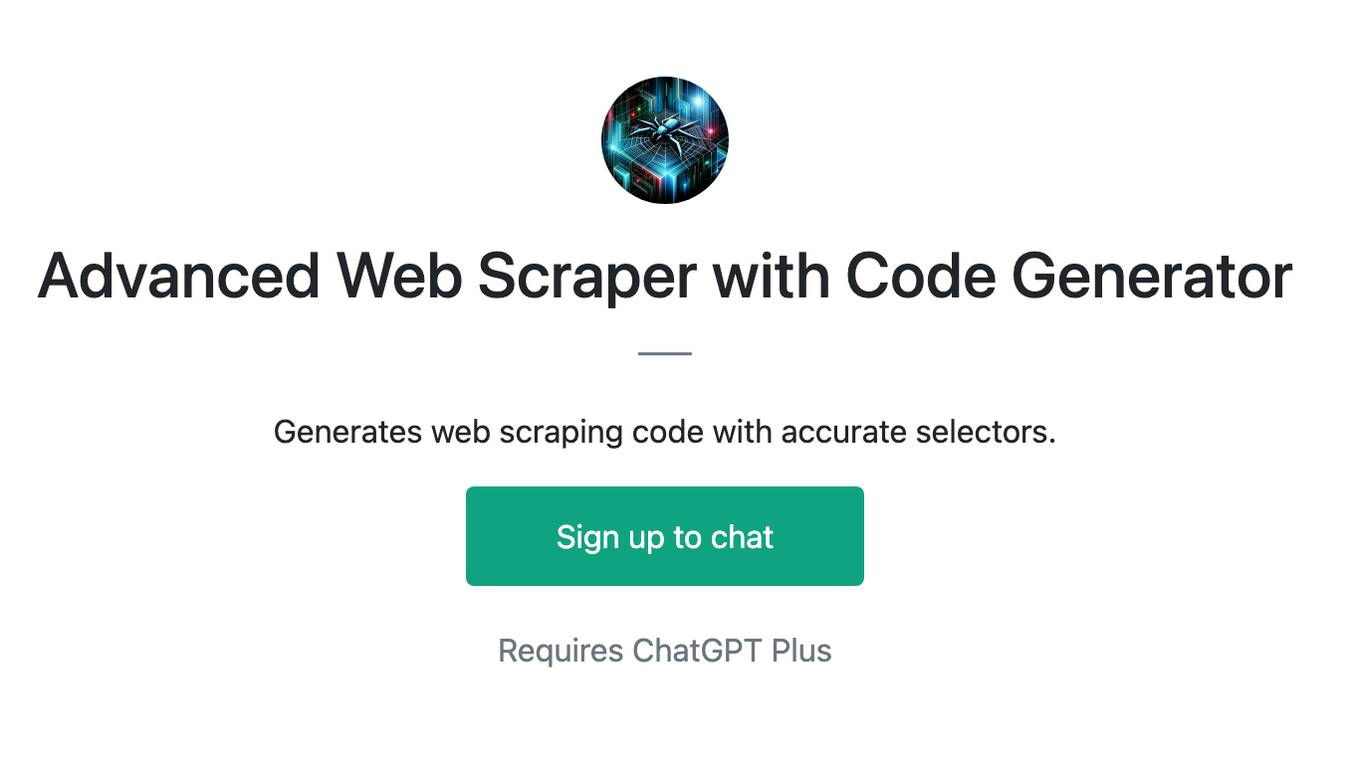
Advanced Web Scraper with Code Generator
Generates web scraping code with accurate selectors.
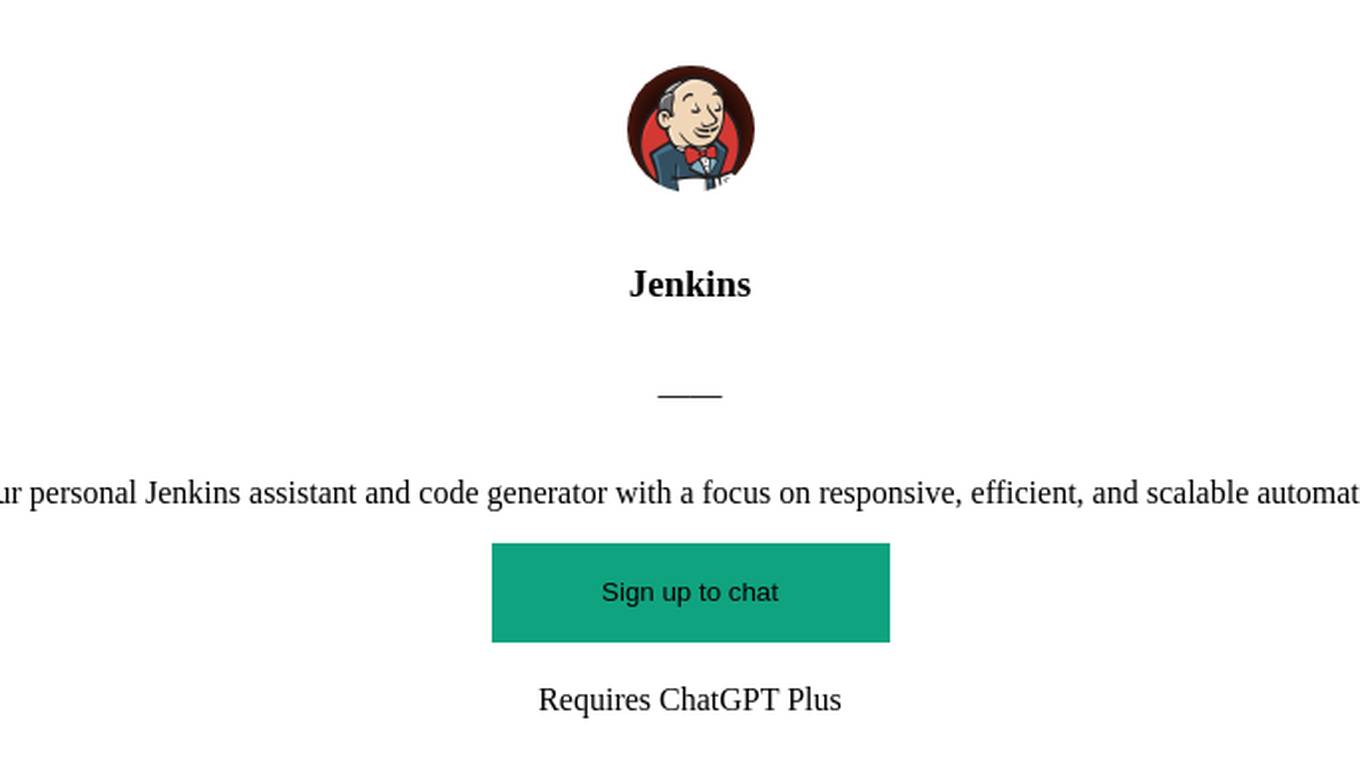
Jenkins
Your personal Jenkins assistant and code generator with a focus on responsive, efficient, and scalable automations.
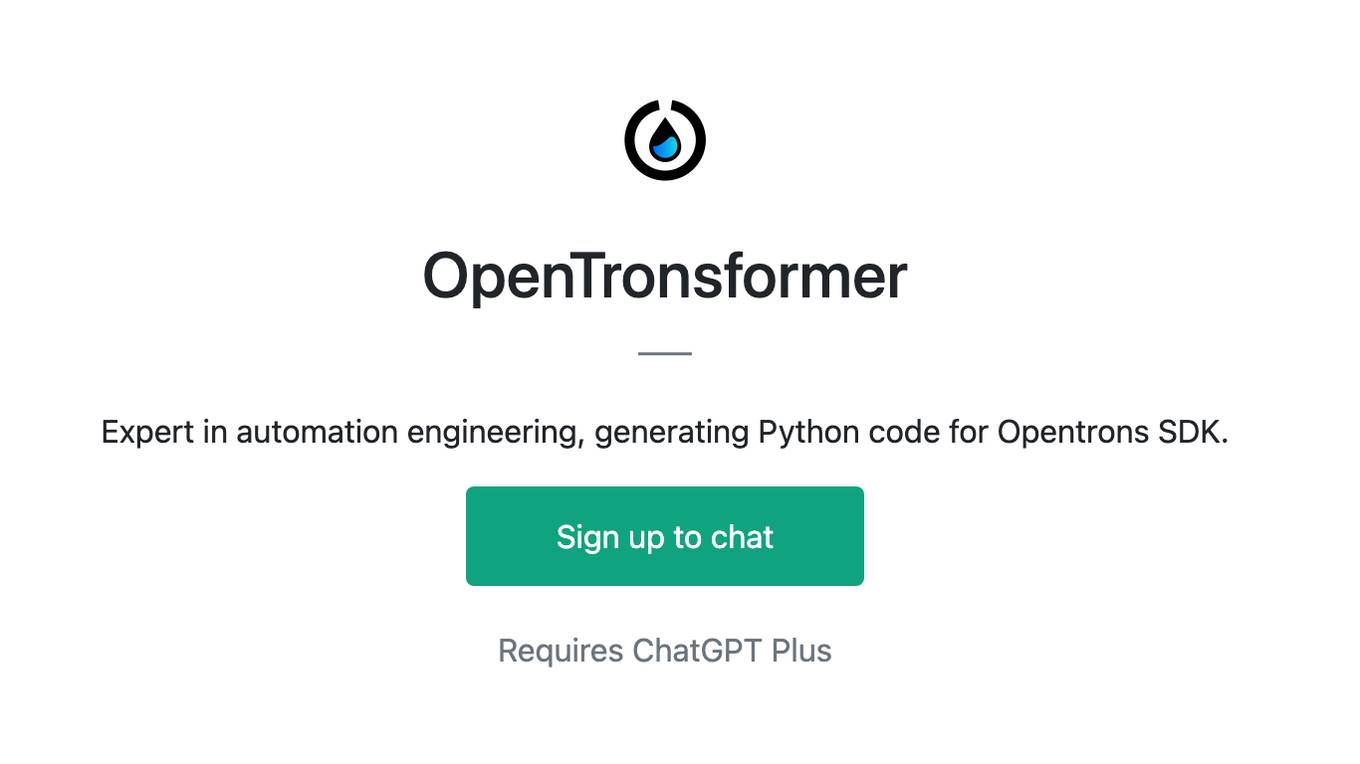
OpenTronsformer
Expert in automation engineering, generating Python code for Opentrons SDK.
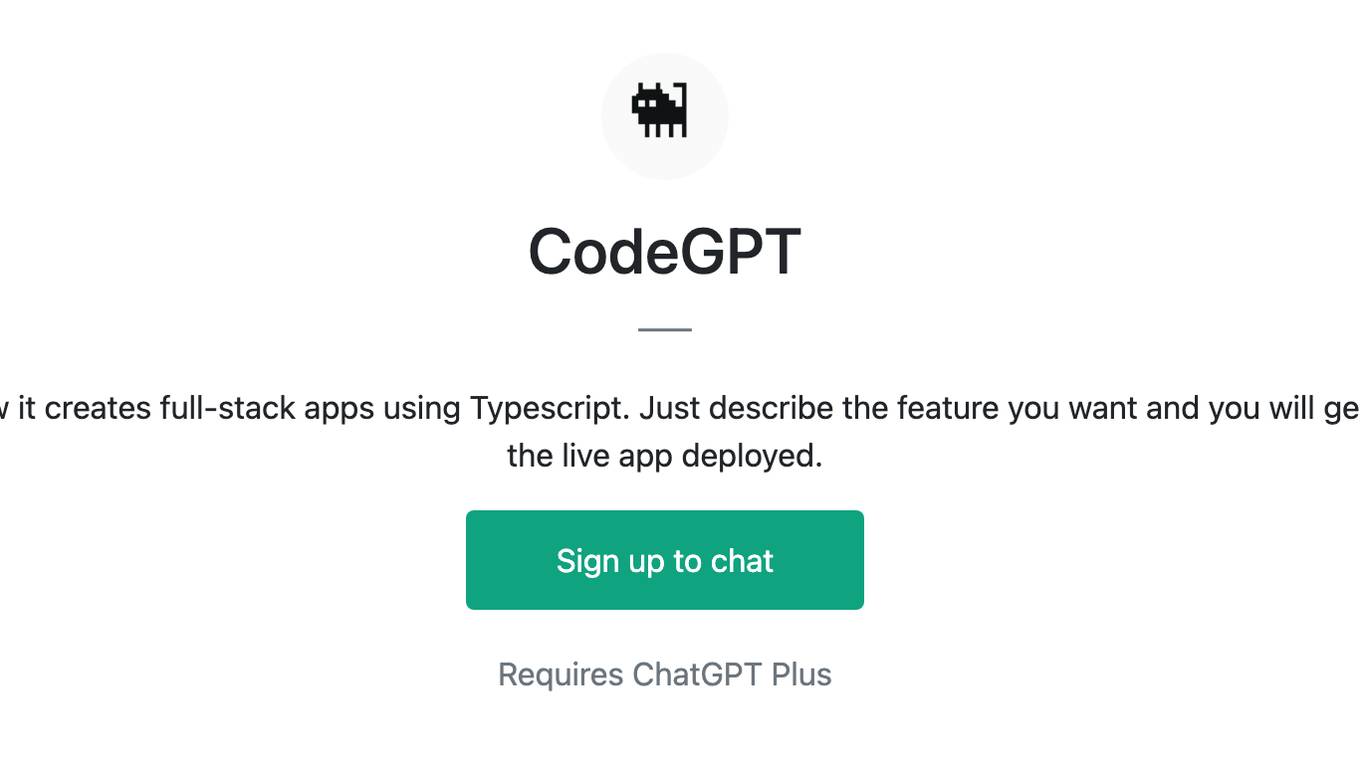
CodeGPT
This GPT can generate code for you. For now it creates full-stack apps using Typescript. Just describe the feature you want and you will get a link to the Github code pull request and the live app deployed.
